|
Challenges of Getting Married in the LGBTQ plus Community Working on the wedding related scenes in my memoir, Mistaken For A Man, A Story for Anyone Struggling to Feel Comfortable in Their Own Skin, Clothes and Community (coming in April 2024). I applied for a wedding license in 2004, when I knew it would be denied. (because I wasn't a man.) in Boulder, Colorado. I got very publicly engaged in 2013 when Doma (Defense of Marriage Act) fell (at that point it didn't matter if I was a man or a woman) but then broke it off.when it didn't feel right I married in 2018, where I could easily have been mistaken for the groom in the clothes I wore in Victoria, British Columbia.
In 2022, I went to a wedding where someone referred to me using They / Them pronouns (in a nice way). Amazing how far we have come that I could go to a wedding and someone would use gender neutral pronouns because they weren't sure what pronouns I would prefer (which is in fact, she / her). in New Jersey.
0 Comments
Are You Part of My Tribe? The Intelligence of Pattern Recognition, An excerpt from No Mistakes!: How You Can Change Adversity into Abundance by Madisyn Taylor, Sunny Dawn Johnston, HeatherAsh Amara, Kimberly Burnham, et al. In 2013, I wrote a personal essay for an anthology, No Mistakes!: How You Can Change Adversity into Abundance What do science fiction writer Isaac Asimov, actress Geena Davis, three-year-old Emmelyn Roettger, and even the animated character Lisa Simpson have in common? Membership in Mensa, which “fosters human intelligence for the benefit of humanity.” Many Mensa questions are based on pattern recognition and determining what does or doesn’t fit. For example: Which body part is the odd one out-cornea, macula, lens, eyes, or iris? Really smart people seem to be saying, “The more you can see the pattern and your place in the pattern-where you fit and how things fit together-the more intelligent you are.” Misdiagnosis or Misperception So how important is literal eyesight and figurative vision in your ability to be successful? Little Emmelyn Roettger’s parents were told she might be autistic. It turned out she just needed glasses, and once they solved that problem she soon became the youngest US member of Mensa. And, by the way, the answer to the question above is: the eyes. The rest are all parts of the whole. Just noticing the pattern, the way in which we are similar and are connected, can bring healing, strengthen the function of your brain, and help you to be more adaptable and intelligent. What do you see when you look at the people around you? It is well into the twenty-first century, and there are still people who want me dead because I have the audacity to love a woman. For some people, that love is a serious lapse in judgment-a mistake that I should regret. But I do not repent the broken path that led me gaily forward to her. [Read More] https://healthy-brain.medium.com/are-you-part-of-my-tribe-the-intelligence-of-pattern-recognition-70f53c531a43?sk=38f8c84cf8355f070140d02452c9f538 I am now working on a new memoir, Mistaken for a Man, A Story for Anyone Struggling to Feel Comfortable in Their Own Skin, Clothes, and Community. (Coming April 2024) Summer 2013 when Kimberly Burnham was riding her bicycle across the U.S. and met up with fellow No Mistakes Author Gloria Piantek
Originally published on June 29, 2012. https://imfromdriftwood.com/story/im-from-provo-ut/ Summer vacation at seven years old, the best part of the day is as much ice cream as I want and a can of grandpa’s Fresca, which he always had in the fridge because he was a diabetic. With saccharin instead of sugar, the Fresca is “healthy” for my recuperating body, now missing a set of tonsils, removed the day before. I am resting comfortably on the yellow and brown plaid couch. My parents, younger sister and baby brother are outside having a picnic in Provo’s dry summer heat. They are eating corn on the cob, thickly sliced red beefsteak tomatoes on soft spongy hamburger buns and homemade pickle relish. I am staring at the red brick fireplace in a place that has always felt like home to me. Once when I was ten and could swim really well, I woke in this house. Then in the coolness of the early, early morning, my dad explained photosynthesis so he could stay awake as we drove through Southern Utah, past Blanding, where he was born, meeting my cousins in the red rocks of Lake Powell. I was finally old enough to see the lake because you had to be able to swim to go on trips on my great uncle’s boat. In those moments, my dad never imagined years later writing a letter, a response to his oldest coming out. “I don’t understand or condone, but you are my daughter whose happiness I value. I love you.” I lived, here in my grandparent’s house with my mother, when I was born. That day, my father got a telegram through the U.S. Naval Messaging Services. He was sitting quietly in his compartment lacing his shoes, when a voice shouted down the topside hatch, “Your telegram is here!” The message had arrived a few hours before, but since it was not his ship’s turn for the radio guard, no one woke him as soon as it arrived, as he had instructed every single one of the watch standers to do. Incoming Message: “Provo, Utah 7:10A Girl Weight 7 Lbs doing fine born July 21st 9:30 PM. Congrats, Ace.” He sends back a message carried by Western Union Telegram, his response to his first child, “I am filled with pride and happiness. God keep both of you until I get home. All my love. At Comfleacts Yokosuka, Japan. Twenty-one years later, I am back at my grandparents’ place getting ready to go a few blocks away to the Missionary Training Center, where I spend two months learning Japanese. Just before I put teenage crushes aside and served a year and a half mission for the Church of Jesus Christ of Latter-day Saints (Mormons) in the Tokyo North Mission, I am studying with the local women missionaries, where I live outside of Cleveland, Ohio. I want to be around them and admire them. I am like a puppy, hanging on their words and the scent of their perfume. I am electrified by an accidental touch, knowing I will soon be one of them, albeit far, far from home. One of those muggy Ohio nights, standing by my car, saying good night to her, a Mormon missionary after a day of pious preparatory study, I am struggling to see the way clear to “nothing wrong with hugging”. “Of course you can hug me,” she says. But there is too much desire. I do not have innocent thoughts. She does not understand, nor do I but it is the only righteous path I see. “I can’t hug you, because I want to.” A few months later in Japan, my red and white tennis shoes sit ready by the unlocked apartment door, side by side facing outward, where four of us live, in the humid Tokyo evening. Calmly, I stand up and move as if looking for a book to intensify my scripture study. I make my escape into the crowded night where I am not allowed without my companion. Alone, I run past the yakimo man hocking hot orange fleshed sweet potatoes, past the family in flip flops on their way to the public ofuro to bathe. Breathing in the steamy spicy air of soba noodles, I savor my brief autonomy. I run until all the stress has left my body. Releasing the anxiety of a bar set too high, I pass the red Shinto shrine and the still dark bell of Buddhist stone guardians. I run back to my life as a Mormon missionary, back into the predictable uproar of broken rules. A few years later, after I have returned to Provo, to BYU, to complete my degree, my cousin prods, “When are you getting married, already? Any prospects?” She confronts in the August heat of a family reunion. Nearly thirty years old, I say, “I am gay.” Speaking the words to my favorite cousin. My cousin, who when a stranger cuts her off in traffic excuses, “he probably just got the call, his wife is in the hospital having his first son.” She and I shared summers sorting cherries on her father’s farm and running free around Europe, where my family lived. There were cool desert nights in sleeping bags watching shooting stars and times together riding farm cows and Belgian street cars. A childhood full of memories, never imagining a future split open like a ripe red farm tomato by the revelation, “I am gay.” That day, the deep waters of Lake Powell cooling our shoulders. These waters safe for cliff jumping, water skiing and swimming. I have been with a woman for five years. My cousin wants to know, “Are you attracted to me? to my sisters?” “Ewww, stop.” “Do you wish you were a man?” I look at her, loving a woman is not the same as wanting to be a man. She wants to know, “Why are you gay?” She is a mother concerned for her children, for the way they will grow up in a world where, “I am gay.” Years pass, before I venture out, again in a letter to my parents. I used hate easy questions like, “Where are you from?”, “Okay, where were you born?” “Where did you go to school?”, “Where do your parents live?” Straightforward questions are unbearably tricky for me. The answers, the intersection point between my straight-laced Mormon past and my activist lesbian present. The funny thing is, while I was born in Provo, Utah and my parents moved into my grandparent’s newly renovated house after my father retired, I grew up overseas, so there are ways in which it doesn’t feel like home, except in my heart. After my mission, I returned to Provo, to Brigham Young University, so simple cocktail party questions once answered, usually lead to, “Are you Mormon?” I am, five generations back and yes, there were polygamists but then I kiss a woman, while still attending BYU, an LDS / Mormon university. Kimberly Burnham, Author of the Upcoming Mistaken for a Man, a Story for Anyone Struggling to Feel Comfortable in Their Own Skin, Clothes, and Community
Mistaken for a Man, came out of a series of experiences, one in particular. The campground experience at the beginning of the book changed how I looked at encounters with people who assume that I am male. At first, as the experiences piled up, they became funny stories to tell at parties and a friend suggested that I write them down in November as part of a NanoWriMo challenge. As I wrote, I remembered more and more incidents, some traumatic, some funny, and some thought provoking. I also got in touch with my connection with my teenage trans stepson and how it feels for him to move through the world. The project began to encompass not only funny stories but also ways to look at the impact of our assumptions about identity on many levels. Most of us would not blurt out an assumption about a woman we suspect is pregnant, but we think nothing of saying “Thank you sir” or “How can I help you, sir” or blocking the door to a public restroom, when we don’t know for certain the gender of the person we are talking to. Ultimately, my goal with this memoir is to cause some people to laugh because in many ways these experiences are funny. Other people, I hope will feel not so alone in the world and know that we are human, we make mistakes, our brains love to take short cuts and make assumptions. A third group of people, I hope will read this memoir and change how they move through the world, allowing all of us to say who we are, be who we are and be comfortable in our community.
Mistaken For a Man: A Story for Anyone Struggling to Feel Comfortable in Their Own Skin, Clothes, and Community is a memoir by Kimberly Burnham (she/her) who identifies as a butch lesbian.
The stories span almost 50 years and countries around the world. Kim poignantly conveys her unique response to people mistaking her for a man in bathrooms, restaurants, stores, parties, synagogues, schools, and other places where gender is sometimes relevant, but often not. She occasionally lifts her shirt to correct a mistaken impression but generally struggles with the choice between ignoring people’s comments, hiding or gently or perhaps forcefully correcting people’s mistaken impressions. It is a book that looks forward to a post gender society where the configuration of the body underneath the clothing and how one self-identifies doesn’t influence what bathroom you can use, where you can eat or pray, and most importantly where you feel safe and who you love. The incidents are recounted in an engaging and thought-provoking way with genuine moments of vulnerability, insight, and wisdom. Please contact the author if you are interested in receiving a review copy.
Peace is Paix in French
As in "La guerre fait les larrons, la paix les pend." (War makes robbers, peace hangs them.), "Oy, voy, et te tay, si veux vivre en paix." (Hear, see, and say nothing if you would live in peace.)
French - "Paix" (peace), “tranquillité d'esprit” (peace of mind), "Bâton porte paix" (A stick is a peacemaker), "La guerre fait les larrons, la paix les pend." (War makes robbers, peace hangs them.", "Oy, voy, et te tay, si veux vivre en paix." (Hear, see, and say nothing if you would live in peace." France, Belgium, Canada, Caribbean, West Africa, Polynesia, etc.
Here are five video tours of Paris, France. No passport or language skills needed.
Paris Tour for 6th -9th Graders [Link].
Buildings and Art: Paris Catacombs Free Virtual Tour from Home [Link]
Buildings and Art: Eiffel Tour - Tour Eiffel
Buildings and Art: Paris' Sacre Coeur Church in Montmartre Neighborhood [Link]
Art - Petite Galerie [Link].
Palace of Versaille [Link]
Art: The Louvre [Link].
Places: Louvre's Metro Station
Places: Air France Museum[Link].
Mind Enjoys Peaceful Emerges In Kurtöp, a language of Bhutan "Dekit" means peace and prosperity linking the two words as synonyms a short part of the word "Kit" and "Kitpa" is peaceful "Jong-wa" means emerge combining for peaceful emerge or "Kitpa Jong-wa" translated happy "Sem ga-taki" also means happy, or literally mind enjoy
Kurtop: Kurtöp (xkz), Kurtop, Kurtöp, Kurtopkha, Kurtokha, Gurtü; Kürthöp; Kurteop, a vulnerable language―"Dekit" (peace, prosperity), "Dewa-ni-kipa" (bless, comfort), "Dewa" (peace, tranquility), "Kit" (peaceful), "Kitpa" (peaceful), "Jong-wa" (emerg), "Kitpa Jong-wa" (happy, lit. peaceful emerg), "Sem ga-taki" (happy, lit. mind enjoy), "Har-si" (feel happy)―Bhutan (Kurtö region in Bhutan, roughly the area of Lhüntse district in eastern Bhutan) Lhüntsi district, up to Tibetan border, west of Kurichu river).
Ora—"ǂxãĩ-b" (peace, to be peaceful), "!nó" (to be quiet), "!nō" (to be quiet, silent)—South Africa.
Aari (aiw)—"Laqmi" (peace)—Ethiopia. Abaluhya—"Omulembe" (peace) —Kenya. Abar or Mungbam—"Bìmje" (peaceful), "Bimbene" (peaceful)—Cameroon. Abau—"Liwak marowhway" (peace)—Papua New Guinea. Abaza—"Māmər" (peace)—Russia (Karachay-Cherkess Republic) and Turkey. Abellen, Ayta—"Tana" (peace)—Philippines. Abenaki (alg), Abnaki—"Olakamigenoka" (peace), "Okikiamgenoka", "Kamignokawôgan" (peace), "Wlakamigen" (peace)—Native American, Maine, USA, Montreal, Canada, North America. Abenaki: Penobscot Abenaki, Aln8ba8dwaw8gan (abe), Eastern Abenaki—"Wlakamigen" (peace), "Čik" (calm, quiet)—North America. Abkhaz (abk, ab), Abkhazian, Aбхазский, Abxazo, Abxaz, Abkhazian (abk), Apkhazian, Apkhaz, Aԥсуа бызшәа [aṗsua byzšwa], Aԥсшәа [aṗsšwa], Abkhaze, Abjaso, a vulnerable minority language in Europe—"Аҭынчра" [Aṭynčra] (peace)—Caucasus and Georgia (Abkhaz Republic), Turkey (diaspora communities in Turkey), Russian Federation, the Middle East and Western Europe; includes the Ashkharawa dialect officially subsumed under Abaza in the Russian Federation. Abui (abz)—"Pendamai" (peace), "Amon" (calm), "Moku" (calm), "Rama" (calm), "Dame" (peace)—Indonesia (East Nusa Tenggara, Greater Alor, and Timor-Alor-Pantar). Aceh, Achinese (ace), Acehnese—"Mayget" (peace), "Damien" (peace)—Aceh, Sumatra, Indonesia. Achaemenid Elamite (elx)—"Gu-gu" (peace), "Gugu" (peace)—Elamite Empire, Ancient Near East, Middle East. Achagua (aca), Achawa, Ajagua, Achugua, and Xagua—"Sáictaque'e" (peace), "Sáictacta" (peace)—Colombia (Eastern Colombia). Aché (guq)—Krɨ̃ba rõma (peace), "Kra gatu" (calm), "ɨ praru gatu" (calm (of the sea)—Paraguay. Achuar-shiwiar (acu)—"Angkan pengker nintimratin" (peace)—Peru. Adyghe (ady), Adygean, Adyghabze, адыгэбзэ, Adygei—"Rупсэху" (peace), "Rупсэф" (peace), "мамырныгъ" (peace)—North-west Caucasus Russia. Afar (aa)—"Salaamata" (peace)—Ethiopia, Eritrea, Djibouti. Afrikaans (afr)—"Vrede" (peace)—South Africa. Aghul (agx), Агульско-русский словарь, Aghul-ch'al, Agiul Shui. Autonym. агъул, Aġul, агъул чӀал , Ağul ҫ̇al,—"ислахІвел" [Islahwel] (peace), "Islakhivel" (peace), "Sakin" (calm), "секинвел" [Sekinwel"] (peace), "Sekinvel" (peace), "иджеф прил хороший" (good), "идже прил хороший" (good), "Idzhef" (good)—Russia. Aghul (Koshan dialect)— "авадушас" [Awadušas] (peace), "Avadushas" (peace), "Idzhed" (good) or "Sakin" (calm)—Southern Dagestan, Russia and Azerbaijan. Aguaruna—"Ag'kan" (peace), "Epegtuniajum" (peace), "Mijámu" (calm)—Peru (Marañon River area) Agutaynen (agn)—"Kaoyan" (goodness; well-being; peace)—Philippines. Ainu (mis)—"アプンノ [Apunno in Katakana] , あぷんの" [Apunno in Hiragana] (peace)—Japan. Äiwoo (nfl)—"Väkolooli" (make peace), "Meloo" (peaceful), "Wâmeloo" (make peace)—Reef-Santa Cruz Islands, Solomon Islands. Ajië, Bakla,Beki, Wai, and A’jie—"Ta" (peace)—New Caledonia, Oceania Ajja, Aja, or Ajagbe—"Fafá" (cold, peaceful, peace, shading), "Ŋcifafa" (peace), "Fɛɛ" (willingly, easily, peacefully),- Benin, a small country in Africa. Ajyininka Apurucayali—"Kamiitha" (peace)—Peru. Akan (ak)—"Asmomdwoe" (peace)—West Africa. Akawaio (ake)—Ereuta (peace), "Tʉusewankamai'" (peace), "Iꞌnɨꞌpanʉkʉ pɨꞌ teꞌsan (make peace)—Guyana (Mazaruni River), Venezuela (Bolivar State), Brazil (Roraima State). Akkadian (akk)—"Salmu" (peace)—Mesopotamia (extinct). Akoose (bss)—"Nsaŋ" (peace) or "Ne nsaŋ"—Cameroon Alabama (nai)—"Ittimokla" (peace), "Utimokla" (peace), "Innaaɬiilka" (peace), "Oolakano" (to be at peace, be friendly, be peaceful)—Native American, North America. Alamblak (amp)—"Duka mmokfot" (peace, hope, forget, lack of worry, think crazy)—East Sepik, Papua New Guinea. Albanian (sq)—"Paqe" (peace), "Páqja" (peace)—Albania, Kosovo, Macedonia. Albanian—"Paqe" (peace), "Páqja" (peace), "Pake" (peace)—Albania, Kosovo. Alekano, Gahuku (gah)—"Hulu" (peace), "Zou" (peace), "Alémo zou live" (silence, make quiet, make peaceful), "Lipizeko" (peaceful, patient, calm), —Papua New Guinea (Eastern Highlands Province). Algonquin (alg)—"Wâki Ijiwebis-I" (peace), Waki Qiwebis—North America (Canada Quebec). Alsatian (gsw)—"Fréda" (peace), "Friede" (peace)—France (Alsace), Switzerland. Alune (alp) —"Mise" (peace), "Mise kai lomai" (peace)—Indonesia. Amanab (amn), Amanab (Naineri)—"Afa sifakalig” (peace)—Papua New Guinea (Sandaun Province). Ambonese Malay—"Bakubae" (peace or damai), "Dame" (peace)—Ambon Island in the Maluku Islands of Indonesia. Amele (aey), Amale, Huar, Jagahala, Haija—"Malol" (peace), "Manin" (peace), "Tanaw-eʔ" (to make peace)—Madang, Papua New Guinea. Amharic (amh, am), Kuchumba, Amarinya, Amharinya, and Amarigna—"ሰላም" [salām] (peace), "Salam" (peace)—Ethopia, Egypt, Israel. Ampeeli (Safeyoka dialect)—"Sɨmeho" (peace)—Papua New Guinea. Ampeeli (Wojokeso dialect)—"Sɨmeho" (peace)—Papua New Guinea. Ampeeli, Safeyoka, Angan, Ampele, Ambari—"Sɨmeho" (peace)—Papua New Guinea. Angave (aak), Ankave—"Ayinɨ́ŋɨ́" (peaceful), "Maiwi" (peacefully, unconcerned, innocently, unaware, careless)—Papua New Guinea's Gulf Province. Anglo Saxon, Old English (ang)—"ᚠᚱᛁᚦ” [Friþ] (peace), “Frið" (peace)—England (extinct). Antillean Creole—"La Pé" (peace), "Lapé" (peace)—France (French Antilles) or Martinique. Arabe—"Sala ̄m" (peace)—Africa. Arabic: Arabic (arb)—"سلام [Salām, Salam] (peace), " صلاة من أجل السلام" (peace) “Salaam” (peace), Salam” (peace)—North Africa, Mideast, Central Asia, and liturgical, Maghreb, Near East. Arabic: Gulf Arabic—"Salaam" (peace) —United Arab Emirates (Dubai, Abu Dhabi, Sharjah), Qatar, Kuwait, Bahrain, Saudi Arabia, Iraq and Oman. Aragonese (an)—"Patz" (peace)—Spain. Aralle—"Kamasahkeang" (peace)—(Indonesian Tribal Language) Aramaic, Syriac, Assyrian (arc)—"ܫܠܡܐ [Shlamaa] (peace)—Iraq, Iran, Syria, and liturgical. Aranda (are), Langrev—"Urnere" (peace)—Lower Southern (Arunta) Australia. Aranés (oci), Aranese—"Patz" (peace), "La Patz" (peace)—Spain, Europe. Arapaho (arp), Hinónoʼeitíít—"Neneenii3o'oneihnoo" (I am behaving well, peacefully), "Teneiitooneiht" (calm, quiet, virgin)—Native American Arawak (arw-000), Araguaco, Arahuaco, Arahuacos, Arawac, Arowak, Arrowukas, Aruak, Aruaqui, Arwuak, Lokono, Lokono Dian (people's talk), Luccumi, an Amerind, Equatorial, Arawakan, Maipuran, Northern, Ta-Arawakan language—"Sare" (well, in Arawak the word well as in live well includes peace and harmony), "Sareken" (better), "Ymadianthi, Omadianthi, Madianthi" (n): companion, buddy, comrade. Sare b-a-li kaky-n b-omadianthi oma. “You must live well (in peace and harmony) with your companions/comrades.” Sare w-a-the ymadianthi oma kaky-n. “Let us live well (in peace and harmony) with our companions)—Suriname (Arawak is spoken by some hundred Arawak people in scattered locations across the north of Suriname), Guyana, Venezuela. Arawak is spoken by a tribe of indigenous peoples primarily located in the Caribbean and northern South America. Arbëresh, Arbyresh (sq)—"Pakjy" (peace), "Paqe" (peace)—Southern Italy. Arifama-Miniafia—"Tufuw" (peace)—Papua New Guinea Armenian (hye, hy) Arménien, Hayeren—"խաղաղություն" [Xaġaġut'yun, Xałałowt‘yown], “Khaghaghoutyoun” (peace), “Khanhaghutyun" (peace), "Khaghaghoutyoun", "Khaghaghutiun", "Ashkharh" (peace), "Han-gč̣im" (lie, rest), "Han-gist" (tranquility), Աղոթք խաղաղության (prayer for peace)—Armenia, Armenian Highlands, Iran, Turkey, Russia, and Azerbaijain. Arrernte, Eastern (aer)—"Mwarre" (peacable, good)—Alice Springs, Australia. Assamese (as)—" শান্তি [śānti] (peace), "Sānti", "Shanti", "Ȟ̇ānti", "Nti" or "Xanti" (peace)—India, Bangladesh, and Bhutan Assyrian (aij, aii), Neo Assyrian or Neo-Aramaic—"Šulmu" (welfare, safety, peace, prosperity)—Iran, North Iraq, Syria, Turkey. Armenia, and Israel. Assyro-Babylonian—"Šul-mu" (peace)—Ancient Semitic.language. Asturian: Asturian (ast)—"Paz" (peace)—Spain. Asturian: Bable (asf)—"Paz" (peace, peace of mind)—Spain: Princedom of Asturias and Portugal. Auhelawa—"Nuwadaumwali" (peace, calm heart, peaceful) or "Ebe"—Papua New Guinea. Avañe'ẽ Guarani, Guaraní Paraguayo—"Py’a guapy" (peace) or "Ɨvɨ-tuporeʔɨ̃" (calm)—Paraguay Avar (av)—"Рекъел" [Reqel] (peace)—Caucasus. Avestan (ae)—"Āxšti" (peace)—Iran (extinct). Avestan—"Axšti" (peace)—Iran (extinct) Ayautla Mazatec (vmy)—"Kjuaxiu" (peace)—Mexico, Mexican state of Oaxaca, in the town of San Bartolomé Ayautla. Aymara, Ajmara—"Hacaña" (peace), Qasiki (free; peaceful; tranquil)—Peru, Bolivia, Paraguay, Argentina, Uruguay, Chile, and Brazil. Ayta Abellen—"Tana" (peace)—Philippines Azeri (az), Azerbaijani (azj)—"Sülh" (peace, armistice, truce, amicable, orderly), صولح , "Salh", "Solh" (peace, armistice, truce, amicable, orderly), "Barış", "Архајынлыг", "динҹлик", "дүнја", "сакитлик", "Cүлһ" "Dünya", "Dinçlik" (peace), "Rahatlıq" (peace, calm, boon, quietude, cosiness, convenience, lull, quietness, quiescence, placidity, rest, quiet, comfort, serenity, repose, ease, facilitation, relief, amenity, facility, accommodation, improvement)—Azerbaijan, Russian, Daghestan, Iran, Afghanistan, Iraq, Syria and Turkey. Azeri, Azerbaijani (azj) Quote—"Şöhratparastlik qurtaran yerdan da əmin amanliq başlaylr." (Peace begins just where ambition ends.)—Azerbaijan, Russian, Daghestan, Iran, Afghanistan, Iraq, Syria, and Turkey. Azeri or Azerbaijani (azj) Quote—"Sülhü qoruyub saxlamaq onu qazanmaqdan daha asandır." (Better keep peace than make peace.)—Azerbaijan, Russian, Daghestan, Iran, Afghanistan, Iraq, Syria, and Turkey. Babylonian, a dialect of Akkadian—"šul-mu"—Ancient Semitic language. Balanese (ban) or Basa Bali—"Damé", "Shanti", "Swasti" or "Rahayu"—Bali. Balochi (bcc)—"Sala" (peace), "Aman" (peace), حیر/صلح or ایمنی "Muhnt" (a share of stolen property restored to the owner as a peace offering)—Iran and Pakistan. Bambam—"Kamasannangam penaba" (peace)—Indonesian Tribal Language. Bambara (bm)—"Here” (peace), “Hèrè” (peace), “Errébé" (peace)—Mali. Bangi (Bobangi) (bnt)—"NyiEe" (peace), "Nyiee" (peace)—Congo. Baoulé—"Ahoudjo hé" (peace), "Dyra koa!" (keep calm)—Ivory Coast, Cote d'Ivoire, West Africa. Barakhinei—"Pû" (peace)—a Conlang. Bargam, Mugil (mlp)—"Tamaz" (peace, good time, offering, sacrifice)—Madang Province, Papua New Guinea. Bari (bfa)—"Fá'rana" (peace) or "Liòngit" (peace) or Yukan (peace, rest)—South Sudan. (Africa). Basaa (bas)—"SàN" (peace), "Sàn" (peace), "Nsaŋ" (peace)—Cameroon. Bashkir (ba)—"тыныслыҡ" [Tïnïslïq] (peace), "татыулыҡ" [Tatıwlıq] (peace), "тыныс" [Tynys] (peace), "Tınıslıķ" (peace)—Volga, Urals, Central Asia. Basque (eu)—"Baké" (peace), "Bakea" (peace)—Spain, France. Batak (btk)—"Pardamean" (peace)—Indonesia. Bavarian (Bayrisch)—"Fridn" (peace)—Bavaria (Germany). Belarusian (bel, be), Byelorussian, беларуская—"мир" [Мір, Mir], Пакой [Pakoj] (peace) (peace), "спакой" [Spakój] (peace), "згода" [Zgoda] (peace)—Belarus. Bemba (bem, byi, bmy, bmb), Chibemba, IciBemba—"Mutende" (peace), "Mutenden" (peace), "Ukwikala mu" (peace), "Tondolo" (silently, calmly)—Northern Zambia, Zaïre, Congo-Kinshasha. Niger-Congo. Bena-bena, Benabena—"Fulu huseꞌna" (peace), "Fulunaꞌa" (peace), "Fulu hu'ehibe" (slow, unhurried, not in a rush, gentle, peaceful)—Papua New Guinea. Bengali, Bangla (bn)—"শান্তি" [śānti, Shanti] (peace) "Sānti", "Sainta", "Shanti", "Shaan-ti" (peace), "Abirōdha" or "Abirodha" (harmony, peace, accord, agreement, amity, friendliness)—Bangladesh and India (West Bengal, Tripura and Barak Valley). Berber—"Thalouith" (peace)—Algeria, Mali, Niger. Béti fang—Mvoay (peace) — Ivory Coast. Bhojpuri (bho)—"Shānti" (peace), "Sānti" (peace), "Sakoon" (peace)—India (Uttar Pradesh), Mauritius, Nepal. Bihari (bh)—" শান্তি" [Śānti]—Bangladesh and India. Biloxi (bil) and Ofo—Toke (calm) or "Tokerti" (calm, no breeze stirring)—United States (Mississippi Valley). Binisaya, Cebuano—"Kamingaw" (peace), "Pagdait" (peace)—Philippines. Bisaya (map)—"Kalinaw" (peace)—Brunei. Bislama (bis), Melanesian Pidgin English—"Natamata" (peace), "Pis" (peace, piece), "Temat" (peace)—Vanuatu, Melanasia. Blackfoot (bla), Siksiká—"Innaaissttiiya" (peace), "Innaihtsi'iyi" (peace)—Canada and United States. Bobo (nic)—"Makonakon" (peace)—Burkina Faso. Boko (nic)—"Lumana" (peace), Salama" (peace)—Benin, Nigeria. Bosnian (bs)—"Мир" [Mir] (peace), "Spokoj" (peace)—Bosnia and Herzegovina, Serbia, Montenegro, Kosovo. Brahui (dra)—"Âsûdaî" (peace)—Pakistan, Afghanistan, Iran. Breton, Brezhoneg—"Peoc'h" (peace), "Pèc'h" (peace)— France (Bretagne). Bribri (bzd)—Se̱ne bë̀rë (peace), Se̱rke bë̀rë (peace)—Costa Rica. Bugis—"Marennui mennang" (peace)—Indonesian Tribal Language. Bulgarian (bg)—"Мир" [Mir] (peace), “споко́йствие” [Spokójstvie] (peace) —Bulgaria, Turkey, Romania. Buli (nic)—"Goom-jigi" (peace)—Ghana. Bulu (bjl)—"Mvo'e" (peace), "évovoé" (calm, tranquil), "Ngbwa" (peace, friendship alliance, friendliness, kindness)—Cameroon and Niger-Congo; Africa. Burmese (my)—"င္ရိမ္းခ္ယေမ္းရေး" [Nrim-khyam-ye, Nyein Chan Yay] (peace), "Nyeinjanyei" (peace), "Ngrim:hkyam:re" (peace)—Myanmar Burushaski (bsk), Burū́šaskī Hunza—"Aram" (peace), "Saláamn" (peace), "Sukóonny" (peace) or "Manókuradj" (peaceful, generous, gentle)—Northern Gilgit-Baltistan, Pakistan. Cadhinor—"Peos" (peace) —a Conlang of Almea. Caglăll— "Pasc" [Pash] (peace), "Pasc" [paʃ] (peace)—Conlang by a Chilean programmer. Cajun French (Acadian, Kreyol Lwiziyen)—"Pé", "Lapé", "Trankil" (peaceful)—Louisiana (USA). Canis—"Йюρaςςåmmåж” [Joorahssommòhzje] (peace)—Conlang. Capeverdian Creole—"Paz" (peace), Pas (peace)—Cape Verde Islands. Caribe (car), Galibi—"Sara'me" (peace), "Panawa" (peace)—Venezuala, Suriname. Caribe—"Sara'me" (peace) or "Panawa" (peace)—Venezuala, Suriname. Carolinian (map)—"Gunnammwey" (peace)—Micronesia. Carolinian—"Gúnnammwey" (peace)—Micronesia. Catalán (cat, ca), Catalão, Català, Catalan-Valencian-Balear—"Pau" (peace), "Vèncer" (calm), "Calma" (calm), "Assossegat" (peaceful, motionless and calm; placid, easy, easygoing, leisurely, placid , quiet, smooth, still, tranquil, unruffled, not hurried or forced)—Catalonia, the Valencian Region, the Balearic Islands, the Franja (Fringe of Aragon), Andorra, France, Roussillon and Alghero (Sardinia). Catanese, Catanès—"Paci" (peace)—Conlang (Adarian of Canalia). Cayuga—"Odriyohsrędaˀǫh" (peace), "Ganig}h[yo" (peaceful)—Ontario, Canada. Cebuano (ceb)—"Kalinaw" (peace), Kahusayan" (peace)—Philippines. Cebuano—"Kalinaw", "Kahusayan" (peace)—Philippines (Central part). Central Atlas Tamazight—"Talwit" (peace)—North Africa. Central Tarahumara—"We kii'ri" (peace)—Mexico (Chihuahua).. Cerma—"Kufĩɛŋo" (peace), "Yaafɛ̃lle" (peace)—Burkina Faso. Chamorro (cha, ch)—"Minaggen" (peace) or "Pås" (peace) or "Påsifiku" (Pacific, peaceful, peaceful state, peace) or "Åplåka" (make peace)—Guam and the Northern Mariana Islands. Champenois (Aube – Marne – Haute-Marne)—"Tocque mornicault" (peace), "Calme" (calm, peace), "Paix" (peace)—France and Belgium. Chechen (ce)—"Машар" [Maşar, Mashar] (peace)—Chechnya (Caucasus), Russia (Chechen Republic) Cherokee, Tsalagi (chr)--"ᏙᎯᏱ" [dohiyi] (peace), "Dohiyi" (peace), "Nvwadóhiyada" (peace)—North America, USA (Oklahoma) Cheyenne (chy)—"Nanomonsetôtse" (peace), "He'kotâhestôtse" (peace)—USA (Montana, Oklahoma). Chichewa, Chewa, Nyanja (ny), Chi Nyanja —"M'tendere" (peace)—Malawi. Chicksaw (cic), Chickasaw (nai)--"Nanna Ayya" (peace)--Native American, North America (South Central Oklahoma) Chiluba, Luba (lbk)—"Ndowe" (peace)—Zaire or Dem. Rep. Congo. Chin, Zomi—"Nopsakna" (peace)—Myanmar and India. Chinese: Mandarin Chinese—"Hé píng" / 和平 (peace)—China. Chinese: Mandarin, Putonghua (zh)—"和平 [Hépíng, Heping" (peace)—China, Taiwan, Singapore. Chinese: Sichuan Yi (ii)—"ꄮꐽ" [Te-njo] (peace)—China. Chinese: Wu Chinese (wuu) y˦tɕiu˦ɦo˨ t‘a˨˩dialect (wuu-007) —"t‘a˨˩ bɦeŋ˩ ˨" (peace), tɕ‘yɛ˦˧ ko˦˧(make peace), "tɕaŋ˦˧dɦeŋ˩˩" (calm)—Jiangsu south of Changjiang River, east of Zhenjiang, on Chongming Island, mouth of the Changjiang, and north of the Changjiang in the area around Nantong, Haimen, Qidong, and Qingjiang; Zhejiang Province south to Quzhou, Jinhua, and Wenzhou. Also in United States. Chinese: Wu Chinese or Shanghainese—"Hhu bin" / 和平 (peace), "Hépíng" (peace) —Shanghai, China. Chinese: Yue, Cantonese or Jyutping —"Peng on" 和平 or "Peng an" (peace), Wo ping / 和平 (peace)—Canton (Guangdong), Macau, and Hong Kong, China. Chiquihuitlán Mazate (maq)—"Cjuajeya" (peace)—Mexico. Chishona/Manyika—"Rugare" (peace)—Africa. Choctaw (cho)—"Achukma" (peace), "Nuktanla" (peace), "Yukpa" (peaceable, peaceful), "Na yukpa" (joy, joyful man, pleasure, rejoicing, peace), "Achukma" (peace, good, well)—Native American language. Chokwe, Cokwe—"Ukulungunga" (peace)--Angola, Congo. Ch'ol, Tumbalá (cai)—"Ñʌch'chocoya" (peace), "ñʌch'tilels" (peace), "ñʌch'tʌlel lac pusic'al" (peace)—Chiapas (Mexico). Chontal, Tequistlatec (nai)—"Aylobaha Gafuleya" (peace)—Mexico. Choua—"Salam" (peace)—Africa. Chuang, Zhuang (zha, za), Vahcuengh, Northern Zhuang—"Bingzan" (peace), "Bingz" (level, even, flat, peace)—Guangxi, China. Chukchee—"Cumav" (peace) / "Цумав", "Унтэм" / "Untem", or "Amaravkėgyrgyn" / "Aмаравкэвагыргын"—Siberia. Chukchi (Chukot) (ckt, mis) —"Cumav" (peace), "Цумав" (peace), "Untem" (peace), "Amaravkėgyrgyn" (peace), "Амаравкэвагыргын" [Amaravkevagyrgyn] (peace)—Siberia. Church Slavonic: Old Church Slavonic (cu)—"Ми́ръ" [mírə] (peace)—Eastern Europe (liturgical). Chuuk (chk)—"Kunammwey" (peace)—Truk. Chuukese (chk)—"Kinamwe" (peace)—Micronesia. Chuvash (chv, Chuv, cv, chuv1255, CJU), Tchouvache, чувашский, Чӑвашла, Çăvaşla, Tënche, a vulnerable Altaic, Turkic, BolgarOghur language—"тӑнӑҫ" [Tănăş] (peace), "тӑнӑҫлӑх" [Tănăşlăh] (peace), "мир" [mir] (peace), "канӑҫлӑх" (peace)—Russia: near the Volga River. Cimbrian (Tzimbro, Tàuc') —"Bride", "Vride" (peace) —Trentino, Veneto (Italy). Cokwe—"Ukulungunga" (peace)—Africa. Comanche (nai)—"Tsumukikiatu" (peace)—North America. Comoran—"Amani" or "Salama"—Comoros, an archipelago in the Indian Ocean. Coptic (cop)—"Ϩιρηνη [Hirīnī]" (peace)—Egypt (extinct) and liturgical. Cornish (kw)—"Cres" (peace)—Cornwall (extinct). Corsican (co)—"Pace" (peace), "Paci" (peace)—Corsica (France), France (Corse), Italy (Sardiania). Corsican (North)—"Pace" (peace)—Corsica (France). Corsican (South)—"Paci" (peace)—Corsica (France).. Cree (cr)—"Wetaskiwin" (peace), Wîtaskîwin" (peace, truce, alliance), "Papayatik" (peace)—North America, Canada. Cree, Alberta Cree—"Peyahtikeyimowin" (peace, after the war)—Alberta, Canada. Cree: Plains Cree or Cree (Saulteau First Nation)—"Āstēkēsikāw" (the day is calm after the storm), "Ayiwāstin" (it is a calm day, the wind has died down), "Kāmwātapiwin" (The act of sitting quietly and not moving)—North America. Creole English: Gullah (Geechee) (cpe)—"Peace" (peace)—Georgia / Sourth Carolina sea islands (USA). Creole English: Jamaican Creole (Rasta, Jam Dung) (cpe)—"Satta" (peace)—Caribbean. Creole English: Port Moresby Creole (cpe)—"Gutpela taim" (peace)—Papua New Guinea. Creole French: Cajun French, Acadian, Kreyol Lwiziyen (frc, cpf)—"Pé" (peace), "Lapé" (peace), "Trankil" (peaceful), "Bon jour" (hello), "soleil" (sun)—Louisiana (USA). Creole French: Guadeloupe / Martinique Creole (cpf)—"Pé" (peace)—Caribbean. Creole: Port Moresby Creole—"Gutpela Taim" (peace)—Papua New Guinea. Cretan, Crétois—"Eiphnh" (peace), ειρήνη or "Irini"—Crete. Crimean Tatar (crh)—"Sulh" (peace), "Barışıq" (peace) or "Tınçlıq" (peace)—Crimea. Crio, Crioulo Creole or Portuguese Creole—"Pis" (peace)—Brazil. Croate, Croatian (hr)—"Mir" (peace rest repose) or "Svijet" (peace) or "Počinak" or "Sklad" or "Sloga" (peace)—Croatia, Bosnie-Herzégovine. Cuêzi, a Conlang—"Pēu" (peace, "Pu" (peace)—Conlang. Czech (cs) Čeština or Česky—"Pokoji" (peace), "Klid" (peace), "Mír" (peace)—Czech Republic. Dagara, Dàgáárè (dga)—"Maaro" (peace)—Ghana, Burkina Faso, Niger-Congo; Africa. Dakota (dak)—"Wóda khota" (peace time, time of truce) or "Míʾogdasʾisʾe" (calm and shining)—North America. Danish (da)—"Fred" (peace), "Friður" (peace), "Vrede" (angry)—Denmark, Germany (Southern Schleswig), Greenland, Faroe Islands. Dari (ira)—"صلح" [Sulh] (peace)—Afghanistan, Iran. Dari Persian, Afgan or Farsi—"Sulh" صلح "Ssulh" (peace), "Soola" (peace), "Sulha" (peace), صوله "Sola" (peace), "Sazi" (peacemaking) —Afghanistan, Iran, and Pakistan. Darja (ar)—"عسلامة" [Esslama] (peace)—Algeria. Darja—"Esslama" (peace)—Algeria. Dholuo—"Kue" (peace), “Kuo” (peace)— Kenya, Uganda, Tanzania. Dinka—"Ador" (peace), “Dɔɔr” (peace)—Sudan. Divehi—"Sulha" (peace)— Maldives. Divehi, Maldivian (dv)—"ސުޅަ " [Sulha] (peace)—Maldives. Dogrib (dgr) or Na-dene—"Ts'èwhı̨ ts'ı̨ı̨wǫǫ" (peace), "Nakenahohtsî" (make peace)—Canada: Northwest Territories. Dolenjsko —"Paks" (peace)—Conlang. Doolomitian —"Pese" (peace)—Con. Doriathrin—"Ēd" (feminine name, rest)—Constructed language conceived by Tolkien. Drow—"Gre'as'anto" (peace)—Con. Dschang or Yemba—"Mbw´né" (peace) —Cameroon. Dschang, Yemba (bai)—"Mbwɛ´né" (peace)—Cameroon. Duala - "Musango" (peace) - Cameroon. Duala (dua)—"Musango" (peace)—Cameroon. Dungan —"хәпин (həpin)" (peace)—China. Dutch (Flemish)—"Vrede" (peace), "Rust" (peace), "Peis" (peace, archaic), "vrede met zichzelf" (peace of mind) —Belgium. Dutch—"Vrede" (peace)", "Rust" (peace), "Peis" (peace, archaic), "Vrede met zichzelf" (peace of mind)—Netherlands, Belgium. Dutch—"Vrede" (peace), "Rust" (peace), "Peis" (peace, archaic), "vrede met zichzelf" (peace of mind) —Netherlands, Belgium. Dutch, Flemish (nl)—"Vrede" (peace)—Netherlands, Belgium, Suriname. Dzongkha (dz)—"གཞི་བདེ" [gzhi-bde] (peace)—Bhutan. Dzongkha—"Gzhi-bde" (peace)—Bhutan. Eastern Bolivian Guarani—"Yerovia" (peace)—Eastern Bolivia. Efik (efi)—"Emem" (peace)—Nigeria. Egyptian—"Hetep" (peace), "Em hotep nefer weret" (very great peace, hello)—Egypt. Ekari (ekg), Mee, Ekagi, Kapauku—"Muka-Muka" (peace), "Mukamuka tai" ( to be satisfied, to be happy or content, to make peace), "Kojaa" (slow, quiet, peaceful)—Indonesia. Elfdalian, Övdalian—"Frið" (peace)—Älvdalen Municipality (Övdaln) in Northern Dalarna in central Sweden. Emakhuwa—"Murettele" (peace), "Mwiwanana" (peace), "Amaani" (peace)—Mozambique. Emberá: Mʌ̃a Emberá—"Necai" (peace)—Colombia. Emberá: Northern Emberá or Embera del Norte—"Nekai" (peace), "Necai b̶ead̶ida", "Kĩrãipa" (peace), or "Paz" (peace)—Colombia, Panama. English (eng, en)—"Peace" (peace)—UK, Ireland, North America, Australia, New Zealand, Sub-Saharan Africa, Carribean, South Africa, etc. English: Middle English (enm)—"Pes, Pise, Pees" (peace)—England (extinct). Eskimo—"Erkigsnek" (peace)—Native American (Greenland). Esperanto ( eo)—"Paco" (peace)—Conlang, Constructed Language Estonian (et)—"Rahu" (peace)—Estonia. Ethiopian—”Selem” (peace)—Ethiopia. Etruscan (ett, mis)—"Pas" (peace) or "Pas fenvs a" (peace we bring to)—Italy (extinct). Éwé, Évé (ee), Gen, and Mina—"Ŋutifafa" (peace), "Fáfá" (peace)—West Africa. Ewondo—"Foè" (peace)—Cameroon. Extremaduran—"Pas" (peace)—Western Spain. Faeroese, Faroean, Faroese—"Fridur" (peace), "Friður" (peace)—Faroe Islands and Denmark. Fanagolo (crp)—"Kutula" (peace)—South Africa. Fang —"Mvoghé " (peace)— Gabon. Faroese, Faeroese (fo)—"Friður" (peace)—Faroe Islands, Denmark. Farsi, Persian—" ﺢﻟﺻ / Sohl" (peace), “Ashtee” حلص “Sohl”—Iran. Ferengi —"Kin" (peace)—Conlang. Fijian (fj)—"Vakaçegu" (peace)—Fiji. Finnish (fi)—"Rauha" (peace), “Hiljaisuus”, “Mielenrauha” (peace of mind), “Rauhanrukous”—Finland, Sweden, Russia. Flemish—"Påye" (peace), "Vreij" (peace), "Rust" (peace) or "Vrede" (peace)—Belgium. Fon (fon)—"Fifâ" (peace), “Fífá” —Benin Franco-Provençal —Pas (peace), "Patz" (peace)—France. French (fr), Français —"Paix" (peace)—France, Belgium (Wallonia), Canada (Quebec), Caribbean, West Africa, Polynesia, , Belgium , Switzerland (Romandie), Monaco, Luxembourg. French—"Paix" (peace), Tranquillité (peace of Mind)—France, Belgium, Canada, Caribbean, West Africa, Polynesia, etc. French: Old French (fro)—"Pais" (peace)—France. Friesch—"Fred" (peace), "Fretha", "Frethe", "Fretho", "Freda", "Grid" (peace)—Germany, Netherlands. Frisian (fy), Frysk (fry), Friesian sherland, Freese, Friesch—"Frede" (peace) or "Fred" (peace), "Frede fan 'e geast" (peace of mind), "Kalm) (calm), "Ienriedigens" (harmony, unanimity), "Fredich", "Freedsum" (peaceful), "freedsum" (peaceloving)—Frisian Islands in the North Sea, Germany, Netherlands Frisian, Northern (frr), a language of Germany, North Frisian dialects are grouped into two main divisions: mainland and insular. Insular dialects are Sylt Frisian (Söl'ring), Föhr-Amrum Frisian (Fering/Öömrang), Heligolandic Frisian (Halunder). Frisian: Western Frisian, Frysk, a language of Germany—"Frede" (peace), "Frederjochter" (Justice of the Peace), "Nobelpriis foar de Frede" (Nobel Peace Prize), "Fredich", "Freedsum", "Stil" (peaceful), "Rêst" (peacefulness)—Germany, Netherlands. Friulian, Frulan (fur)—"Pâs" (peace), "Pac" (peace)—Italy (Friuli) . Fula, Falani (ff)—"Jam" (peace)—Nigeria, Guinea, Mali, West Africa. Fulfulde: Fulfulde—"Jam", Jojja (reconcile, adjust), "Jojjiiji (peace, reconciliations, harmony), "Jojjindidira" (make peace between, meidate), or "Hoolnaare (safety, peace, state of peacefulness, confidence)—Mali. Fulfulde: Borgu Fulfulde (fue) or Borgu—"Jam"—Burkina Faso, Benin, Nigeria, Central-Eastern Niger spoken in Cameroon. Chad. Nigeria. Sudan. Fulfulde: Burkina Fulfulde, Burkina, Western Niger —"Jam" (peace)—Burkina Faso and Western Niger. Fulfulde: Maasina Fulfulde (ffm) or Maasinankoore Fulfulde or Maasina—"Jam"—Mali, Niger, Congo. Fulfulde: Pulaar Fulfulde or Pulaar—"Jam" (peace)—Burkina Faso, Nigeria, Central-Eastern Niger, Cameroon, Chad, and the Sudan. Fulfulde: Pulaar/Pular/Fulani) —Jam (peace)—West Africa. Ga—"Hejole " (peace)—Conlang. Gaelic Scottish, Scots Gaelic, Gàidhlig (gla)—"Sìth" (peace), "Saucht" (reconciled, at ease, in peace, tranquility)—Scotland. Gaelic-Irish—"Siochain" (peace), “Sith” (peace)—Ireland. Gafuleya Chontal—"Aylobaha" (peace)—Mexico. Galician, Gallegan (gl)—"Paz" (peace)—Spain (Galicia), Portugal. Ganda (lg), Lug, Ganda—"Mirembe" (peace)—Uganda, Niger, Congo. Garifuna (cai)—"Darangilaü" (peace)—Honduras, Belize. Gascon —"Patz" (peace)—Conlang. Ge'ez (gez)—"ሰላም [Salām, Salam] (peace)—Ethiopia, Eritrea (liturgical). Gen/Éwé/Mina—Dutifafa (peace), Ŋutifafa" (peace) —West Africa. Georgian (ka)—"მშვიდობა" [Mšvidoba] (peace), “სიმშვიდე / Simšvide” (peace), “მშვიდობა / mšvidoba”—Georgia. German: German (de)—"Friede" (peace), "Frieden" (peace), "Der Friede" (peace), “Ruhe” “Scheinfriede” (phoney, hollow)—Germany, Austria, Switzerland, Liechtenstein, Italy (South Tyrol), Belgium, Luxembourg. German: Alsatian, Alemannish (gem)—"Fréda" (peace)—France, Switzerland. German: Bavarian, Bayrisch (gem)—"Fridn" (peace)—Bavaria (Germany). German: Cimbrian, Tzimbro, Tàuc' (gem)—" Bride, Vride" (peace)—Trentino, Veneto (Italy). German: Kölsch (gem)—"Fridde" (peace)—Germany. German: Low German—“Freden”, “Freed”, “Fräden”, “Frääd” (peace) —Germany German: Mennonite Low German (gem)—"Fräd" (peace)—North/South America, Europe. German: Middle High German (gmh)—" Vride" (peace)—Central Europe (extinct). German: Old High German (goh)—"Fridu" (peace)—Central Europe (extinct). Giha—"Amahoro" (peace) -Western Tanzania. Gikuyu—“Thayu” (peace), “Ũhoro” (peace), “Horo” (peace)—Kenya. Glagolitic Script—"ⰿⰹⱃⱏ" [Mirŭ] (peace)—Eastern Europe. Gnomish—"Gwilm" (cessation, peace, peace, quiet, rest, quiet)—Constructed language conceived by Tolkien. Gothic (got)—"Gawairþi" (peace), “Friþu” (peace)—Central Europe (extinct), Eastern Europe, Italy, Gallia Aquitania, Gallia Narbonensis, Hispania, Crimea - Extinct Greek: Greek (el)—"Ειρήνη" [iríni] (peace), ησυχία (el) f (isychía), γαλήνη (el) f (galíni), ηρεμία (el) f (iremía), ειρήνη (el) f (eiríni)—Greece, Cyprus. Greek: Ancient Greek (grc)—"Εἰρήνη {eirḗnē]" (peace), "Eirini" (peace)—Mediterranean (extinct) and liturgical. Greek: Ancient—εἰρήνη (eiréne)—Ancient Greece Greek: Modern—"Iríni / ειρήνη / Eirēnē” (peace), “Irene” (peace), “Eiphnh” (peace)—Greece, Cyprus. Greenlandic, Kalaallisut (kl)—"Irqigsiniq" (peace), "Erĸigsineĸ" (peace), "Eqqissineq" (peace), “Eqqisaqatigiineq” (peace)—Greenland. Griko (el)—"Filìa" (peace)—Puglia (Italy). Guadeloupean Creole French (gcf)—"Pe" (peace), "Lapé" (peace), "Nofrap" (calm), "Ou pé komansé dékòlè" (you can start calm or you can calm down now)—Guadeloupe. Guahibo (guh, cai)—"Diosojavabelia, itsamonaejavabelia ata, barajamatabëcuenexanepanaeya vajataenexa" (peace)—Colombia, Venezuela. Guarani (gn)—"Apĭrĭvé, Ñerane'i, Py'aguapy" (peace), Aprvé, Ñerane'i, Py'aguapy, “Moñera'ÿ” (peace)—Bolivia, Paraguay, Brazil. Guiana Creole (Kreyol) (at)—"Lapè" (peace)—Caribbean. Gujarati (gu)—"શાંતિ [Śānti]" (peace), "Shanti" (peace), "Śānti", "Shāntatā" (peace, calm), શાંતિ—India, Pakistan. Gullah (Geechee) —"Peace" (peace)—Georgia / South Carolina Sea Islands (USA). Guyanian Creole—“La pé”—Guyana Gwich'in (gwi)—"Tsinehdan" (peace)—Alaska. Haida—Dláaya (is to be peaceful and calm)—North America (Canada: British Columbia; US: Alaska) Haiti Creole (Kreyol) (at), Haitian Creole (Kreyol)—"Lapè" (peace) —Caribbean. Haka—"Remnak" (peace) dai zirziar in um caan; e.g. A great calm followed the storm = Thlichia kha dai zirziar in a ummi caan nih a hun zulh (calm), a dai; e.g. A calm night = A daimi zan—Myanmar Hakka—和平 (fò-phìn)—China. Halaka—"Pegdub" (peace)-- Hangaza—"Amahoro" (peace)—Tanzania. Hausa (hua)—"Lafiya" (peace), Amana (peace), "Zaman lafiya" (peace), "Kwanciyar hankali" (peace), "Hakkure" (peace), "Lùmana" (peace), "Lùmaanàà" (peace), "Salamàà" (peace), "Sálámȁ" (peace), "Natsuwa" (peace)—Nigeria, Benin, Burkina Faso, Cameroon, Ghana, Niger, Nigeria, Sudan and Togo. Hawaiian (haw)—"Maluhia" (peace), "Maluhia" (peace), "Sipala" (peace), Malu (peace), “La’i” (peace)—Hawaii. Hebrew (heb)—"שלום" [Shalom] (peace), "שלווה \ שַׁלְוָה שלמא , Š(ə)lāmā—Israel and liturgical. Herero (her, hz), Otjiherero, Ovaherero, Helelo, a Bantu or Bantoid language—"Ohange" (peace), "Oveaotyohange" (those of the period of peace)—Niger-Congo, Namibia (Damaraland and Ovamboland), Botswana (Herero and Mbanderu peoples in Namibia and Botswana), Southern Africa, Africa. The Herero, also known as Ovaherero, are an ethnic group inhabiting parts of Southern Africa. The majority reside in Namibia. Hiligaynon, Ilongo (hil)—"Paghidait" (peace)—Philippines. Hindi (hi)—"शांति" [śānti] (peace), "Santi" (peace), “Shantih”, शांति “Śānti”, “Aman” (peace)—India, Nepal, Uganda, Suriname. Hiri Motu (ho)—"Taim billong sikan" (peace)—Papua New Guinea. Hmong (hmn)—"Kev tiaj tus" (peace), "Kev sib haum xeeb" (peace)—China, Vietnam, Laos, Thailand. Hmong: Green or Blue Miao dialect—"Thaaj yeeb" (peace)—China, Vietnam, Laos, Thailand. Hmong: White Hmong—"Thaj yeeb", "Kev sib haum zeeb" (peace)—China, Vietnam, Laos, Thailand. Hobyót, Hewbyót, Hobi, or Kalam Rif Weyheybyot—"ʔáfyət" (peace and good health)—Southern Arabia. Hokkien—“Taipeng” (peace)—China. Hopi (nai)—"Sipala" (peace), “Shinumu” (peaceful), “Paasikwa” (peace)—North America Huautla Mazatec (mau)—"Xi³ nchˀan¹ tjin" (peace)—Mexico. Hula—"Paghidaet" (peace) Hungarian (hu)—"Béke" (peace), “Békesség”, “Nyugalom”—Hungary, Romania, Slovakia. Icelandic: Icelandic (is)—"Friður" (peace), “Friðartími”, “Grið” (peace)—Iceland Icelandic: Old Icelandic (is)—"Friðr" (peace), "Fridr" (peace)—Iceland. Ido (io)—"Paco" (peace)—Nigeria. Igbo (Ibo, ig), Ibo (ig), Ogam—" Ùdo" (peace), "Udo" (peace), "Udho" (peace), "Ndokwa" (peace)—Nigeria. Ikinyarwanda—"Amahoro" (peace), "Salama" (peace)—Rwanda, Democratic Republic of Congo and Uganda. Ila (bnt)—"Chibanda" (peace)—Zambia. Ilocano (ilo)—"Kappia" (peace)—Philippines. Ilongot—“Paghidait” (peace) Inabaknon (abx)—"Kamurayaw" (peace)—Philippines. Indonesian, Bahasa Indonesia (id)—"Kedamaian" (peace), "Damai" (peace), "Perdamaian" (peace), "Ketentraman" (peace), “Ketenangan” (peace)—Indonesia. Ingush (inh)—"Машар" [Mashar] (peace)—Ingutia (Caucasus). Interlingua (ia)—"Pace" (peace)—Conlang, Constructed Language. Interlingue (ie)—"Pace" (peace)—Conlang. Inuit, Inuktitut (iu)—"ᓴᐃᒻᒪᓯᒪᓂᖅ" [Saimmasimaniq] (peace), “Tutkium” (peace), “Tutkiun” (peace), “Anusdake” (peace), “Eqkisgineq” (peace), "Saimmasimaniq" (peace), ᑐᑦᑭᐳᓐ (tutkiun)—Native American, Canada. Inupiak, Iñupiaq (ik)—“ᑭᖑᐃᖓᒃ" [Kiñoiñak], "Kiñuiñak" (peace), "Tutqiun" (peace)—Native American, North America, USA (Alaska). Irish (ga), Irish Gaelic—"Síocháin" (peace), “Síth” (peace), “Suaimhneas” (peace of mind)—Ireland Ishkashmi (ira)—"سلام" [Salām] (peace)—Central Asia. Ismaîn—“Pe” (peace) -- Italian (it)—"Pace" (peace)—Italy, Switzerland, San Marino. Itelmen, Itelmenic —ткарвэл (tkarvel)-- Ivatan (phi)—"Saychid" (peace)—Philippines. Jamaican Creole English, Jamiekan, Jamaican Creole, Rasta, Jam Dung—"Sata" (to tell an individual or group to relax; be at at peace or state of rest), "Satta" (peace) or ":Liv gud wid piipl" (peace)—Jamaica. Japanese (jap, ja)—"平和 " [Heiwa] (peace), 平和 (へいわ, Heiwa”, 平静 (ja) (へいせい, heisei), 平安 (ja) (へいあん, heian)—Japan Jarawara (jaa)—"Bara" (live in peace)—Brazil. Jatibonicu Taino (cai)—"Amikekia" (peace)—Puerto Rico. Jatvingian, Sudovian—"Sanpak", "Pak" (peace)—Baltic (extinct). Javanese (jv)—"Rukun" (peace), “Tentram” (peace), “Rahayuning gesang”—Indonesia. Jawa-Suriname— "Tentrem" (peace)—Indonesian Tribal Language. Jerma (Niger)—“Baani” (peace) Joola (Senegal)—“Ku sumay” (peace) Judeo: Judeo Persian (jpr), Judaeo-Persian, Bukharic, זאַבּאָניִ יאַהוּדיִהאָייִ בּוּכאָריִ [Zaboni yahudihoyi buxori] (bhh), בּוּכאָריִ [Buxori] (bhh), a Southwestern Iranian language—"Salum" (peace)—Mideast, Central Asia. Judeo: Judeo-Arabic (jrb), Arabi, Judéo-arabe, יהודית ערבית, a Semtic language—"Shlama" (peace) "Madi:nat as-sala:m" (the Town of Peace (Jerusalem) instead of "Yeru:šalayim" or "רושלים" in Hebrew (The translator glosses ירוּשָׁלִָ֑ם (“Jerusalem”) as דַאר אַלסְלַם (dār al-salām, “the house of peace”), using a defective spelling (possibly, al-salam)—Middle East, North Africa dialects. Judeo-Arabic are Arabic dialects spoken by Jewish communities in the Arab world. Judeo: Judeo-Arabic—Shlama—Middle East, North Africa Judeo: Judeo-Italian, Italkian or Bagitto—"Pača" (peace)—Italy. Judeo: Judeo-Persian, Bukharic—"Salum"—Mideast, Central Asia. Judeo: Ladino, Judeo-Spanish (lad)—"פאש" [Pas] (peace)—Turkey, Israel, North Africa. Kabardian—"Māmərəġă" (мамырыгъэ) (peace) or "Māmər" (мамыр) (peaceful)—Northwest Caucasian and the Eurasia Russia's Kabardino-Balkaria. Kabyle (kab), Kabylian—"Lahna" (peace), “Laafya”, “Asrad”, “Afra” (tranquility)—Algeria (Kabylie). Kala Lagaw Ya—"Paaudh" (peace), "Paaudha" (peace)—Western and Central Torres Strait Islands between Papua New Guinea and the mainland of Australian. Kannada (kn)—"ಶಾಂತಿ" [Shaamti] (peace), ಶಾಂತಿ / Śānti—India. Kanuri (knc-000, kr), a Saharan language—"Hêr" (the peace), "Kelafia" (peace)—Niger, Nigeria. Karelian (fiu)—"Rauhu" (peace), Vienosti" (peace)—Russia, Finland. Karen—“Emo tashi” (peace)—Burma Karo—"Kemalemen ate" (peace)—Indonesian Tribal Language. Kashmiri (ks)—"امن" [Amn] (peace)—Kashmir (India, Pakistan). Kashubian—"Mir" (peace)-- Kazakh (kk)—"Бейбітшілік" [Beybitšilik], [bEjbetSilik] (peace), “Beybiychiyliyk” (peace), “Mir” (peace), “Tınıştıq” (peace)—Kazakhstan. Kekchi (myn)—"Tuktuquil usilal" (peace)—Guatemala, Belize. Khmer (km), Kampuchea—"សន្តិភាព" [Santiphap, San Tepheap] (peace), “Santekphep”, “Sontépheab”, សន្តិភាព (san tepheap), ក្រសាន / Krɑsaan, ធ្យាន / Tyien (peace of mind), សន្តិភាព / Sondtipeeup, សន្តិកាល Sɑnteʔ kaal, “Soksang”—Cambodia, Thailand, Vietnam Kiche—"Utzil" (peace, blessing, goodness)—Guatemala (Momostenango (as well as its dependent Aldeas of Canquixaja, Nimsitu, and Panca) and Totonicapan (and its dependent Aldeas of Nimasak and Cerro de Oro). Kikongo—"Kikœndi" (peace), "Luvuvamu" (peace), "Ngêmba" (peace)—Democratic Republic Of The Congo, The Republic Of The Congo, Angola. Kikuyu, Gikuyu (ki)—"Thayu" (peace), “Thayũ” (peace), “Ũhoro” (peace)—Kenya. Kildi Sami—"Ajjv" (peace), мырр / “Myrr” —Russian Arctic. Kim Mun (mji) or Kjimmun—"Kwan ʔpjaŋ" 和平 (peace)—Yanyuan, Qiongzhong County, Hainan, China. Kimbundu—“Kutululuka” (peace) —Angola. Kinyarwanda, Rwanda, Ruanda (rw), Kirundi—"Amahoro" (peace), "Nimuhóre"—Rwanda, Democratic Republic of Congo, Uganda. Kirghiz, Kyrgyz (ky)—"Тынчтык" [Tınçtık] (peace)—Kirghizstan, China. Kirundi (Burundi)—"Amahoro" (peace)—Burundi and Rwanda Klingon—“Roj” (peace)—Conlang of Star Trek. Koasati, Coushatta (nai)—"Ilifayka" (peace)—North America. Kölsch—"Fridde" (peace)—Germany. Komi (kpv-001, kv)—"Söglasön olöm" (peace), "Soglasonolom" (peace), "Mir̃" (peace), "Lönʸ" (calm (of the sea), "Lony" (calm), "Yри" or "Мир" (peace) —Russian Arctic. Kongo (kg)—"Kikœndi" (peace), “Ngemba” (peace)—Congo. Konkani—“Soukāsāi” (peace), “Shanti” शंति (peace)—India. Korean (kor, ko)—"평화 " [Pyonghwa] (peace), "P'yŏng-hwa " (peace), 평화를 위한 기도, 평안 / Pyeong-an, 平安 , Pyeongjeong (peace of mind)—Korea Koryak—“Aмкавың”, “Amkavyng”, “мир”, “Mir”-- Kosraean (kos)—"Mihs" (peace)—Micronesia. Kreol—"Pé" (peace)—Africa. Kurdish (ku)—"Hasîtî" (peace), "Һашити" [Hasiti], "ھاسیتی" [Hasītī] (peace), "Asti" (peace)—Kurdistan (Turkey, Syria, Iran, Iraq). Kwamera (tnk)—"Pis" (peaceful, calm), "Nəmərinuyen" (peace), "Nəmərinuien" (peace), "əmərinu" (peace)—Tanna, Vanuatu. Kwanyama, Kuanyama (kua, kj), Oshikwanyama (kua)—"Ombili" (peace)—Angola, Namibia. Ladin (roa)—"Pêš" (peace), "Pêsc" (peace)—Trentino-Alto Adige (Italy). Laizo/Falam—"ramnak; daihnak, " (peace), "a reh mi; dai khip khep mi; a thing mi, a ngawi mi" (calm)—Myanmar and India. Lakalai or Nakanai—"Telela" (peace)—New Britain, Papua New Guinea. Lakota, Dakota (sio)—" Wolakota" (peace)—North America. Lango (lij), Langi, Leb Lango, Leb Lano, Leb Laŋo, Leb-Lango, Lëblaŋo, Lwo, Lwoo—"Kuc" (peace) "Kuch" (to be quiet, to be at peace), "Kweo" (to make cool, to pacify), "Ayom" (soft, peaceful), "Morembe Ayom" (good greeting), "Buti Ayom" (sleep softly, well)—a Southern Luo dialect spoken by the Lango people of Uganda and the Sudan. Lao (lo)—"ສມຕິພາປ" [Santiphap] (peace)—Laos, Thailand. Lari—"Dzûnu" (peace)—Republic Of The Congo Latin (la)—"Pax" (peace), "Pax Sit" (let peace be)—Rome (extinct) and liturgical. Latvian (lv)—"Miers" (peace)—Latvia. Lenakel—"Pis" (peaceful, calm), "Nəməlinuan" (peace) or "əməlinu" (peace)—Tanna, Vanuatu. Lenape, Delaware (del)—"Achwangundowagan" (peace)—North America. Ligurian (roa)—"Paxe" (peace)—Italy (Liguria). Limburgan, Limburgish (li)—"Vreij" (peace)—Belgium. Lingala (ln)—"Kímía" [Kimia] (peace), “Bobóto" (peace)—Congo, Democratic Republic Of The Congo, Republic Of The Congo, Angola, Central African Republic Lingua Franca (crp)—"Pace" (peace)—Europe, North Africa, Middle East (extinct). Lithuanian (lt)—"Taika" (peace)—Lithuania. Lojban (art)—"Panpi" (peace)—Conlang. Lombard (roa)—"Pas" (peace)—Lombardy, Piedmont, Trentino (Italy); Ticino (Switzerland). Louisiana Creole French (lou) (Bayou Teche)—"Pe" (peace)—Louisiana. Louisiana Creole French (lou) (Côté Allemand Creole)—"Lape" (peace)—Louisiana. Louisiana Creole French (lou) (Pointe Coupee Parish)—"Pe" (peace), "Lape" (peace)—Louisiana. Louisiana Creole French (lou) (Saint Tammany)—"Pè" (peace). "Trankil" (peaceful)—Louisiana. Louisiana Creole French (lou)—"Pe" (peace), "Lape" (peace), "Pè" (peace), "Trankil" (peaceful)—Louisiana. Low Saxon—"Vre(D)E" (peace)—Germany (Northern Germany), Netherlands Lozi (loz)—"Nala" (peace)—Zambia. Luba-Katanga (lu), Kiluba—"Ndoe" (peace)—Niger, Congo. Luganda (afa)—"Emirembe" (peace)—Uganda. Lugbara or Mugandat—"Asindriza" (peace (literally beautiful heart or nice heart), "Angu ndriza" (peace), "Asianzu" (peace, mercy)—Uganda and in the adjoining area of the Democratic Republic of the Congo. Luxemburgish, Lëtzebuergesch (lb), Luxembourgish—"Fridd" (peace), "Fridden" (peace)—Luxembourg. Màaya Yucateco (yua)—"Ets'a'an óolal" (peace, tranquility), "Jéedzel óolal" (peace), "Kinsik" (calm)—Mexico and Belize. Macedonian (mk)—"Мир" [Mir] (peace)—Macedonia. Maghrebi—"Salam" (peace)—Africa. Magindanoan (phi)—"Kali lintad" (peace)—Philippines. Malagasy, Malgache (mg)—"Fandriampahalemana" (peace)—Madagascar. Malay (ms), Bahasa Malaysia—"Keamanan" (peace), "Damai" (peace), "Daman" (peace)—Malaysia and Indonesia, Brunei, Singapore. Malayalam (ml)—"സമാധാനം" [Samaadhaanam] (peace)—India (Kerala). Malgache, Malagasy, Maalgasy, Masikoro—"Adana" (peace, slow, peaceful, tranquil; grave and prudent in action), "Fandriampahalemana" (peace), "Salama" (peace), "Mahasalama" or "Fahasambarana" (peace, tranquillity, blessedness), or "Fiadanam-po" (peace)—Madagascar East Africa. Maltese (mt)—"Paċi" (peace), "Sliem" (peace)—Malta. Manding (Mandenkan) —"Kayiroo" (peace)—Africa. Mandinka (man)—"Kayiroo" (peace)—Senegal, Gambia, Guinea-Bissau. Manobo (mno)—"Linew" (peace)—Philippines. Manx (gv)—"Shee" (peace)—Isle of Man. Maori (mi)—"Rangima'arie" (peace), Nohopuku" (peace), Rongo" (peace)—New Zealand. Mapundungun (arn)—"Uvchin" "Tügkülen" (peace)—Chile. Maranao (phi)—"Diakatra" (peace)—Philippines. Marathi (mr)—"शांतता" [Śāntātā] (peace), "शांती" [Śāntī] (peace)—India. Marquesan (map), Marquesas, an Austric, Austronesian, Malayo-Polynesian, Central-Eastern, Eastern, Oceanic, Remote, Central (A:M:C:E:O:C:R:C:E:P:N:E:C:Marquesic) language—"Hau" (peace), "Menino" (calm, without wind, silence (calm sur mer et sur terre; silence), "Manino" (calm, slow (calme; lente, lentement), "Merie" (serene, fine), "Meʔie" (calm, serene), "Hau tree" (Paritium tiliaceum), "ʻĀinahau" (land of the hau tree), "Hakavaʔe" (flatter, appaiser, calmer, caresser; caresse, flatterie)—Marquesas Islands, French Polynesia. The Marquesas Islands are a group of volcanic islands in French Polynesia, an overseas collectivity of France in the southern Pacific Ocean. The Marquesas are located at 9.7812° S, 139.0817° W. The highest point is the peak of Mount Oave on Ua Pou island at 1,230 m above sea level. Marshallese (mh)—"Ainemon" (peace)—Marshall Islands. Masaba, Lumasaba (bnt)—"Koosi" (peace)—Uganda. Masai, Maasi—"Eseriani" (peace)—Kenya and Tanzania. Matu—" rhoeprhoi nah, ngaimongnah" (peace), dingcicak, dingrak, hlangihsap tue. (calm)—Myanmar and India. Mawu (afa)—"Hálá" (peace)—West Africa. Mayangna, Sumu (sai)—"Prî Lâni" (peace)—Nicaragua. Mazatec: Jalapa De Díaz Mazatec (maj)—"Kju̱a̱jyu" (peace)—Mexico. Mažtane—"Pén"—a Conlang of Verdurian. Mele, Mele-Fila (mxe)—"word" (peace)—Atara mere, Vanuatu. Micmac (mic)—"Wôntôkóde" (peace)—North America. Mingo, Unyææshæötká' (iro)—"Skn'" (peace)—North America. Miskito (cai)—"Kupia Kumi Laka" (peace)—Nicaragua. Mohican, Mahican, Mohegan (alg)—"Anachemowegan" (peace)—North America. Mokilese (map)—"Onpek" (peace)—Micronesia. Moldavian, Moldavan (mo)—"Паче" [Pace] (peace)—Moldava. Mongolian (mn)—"Энх тайван" [Ènx tajvan] (peace)—Mongolia. Mongo-Nkundu (lol)—"Bóoto" (peace)—Congo. Moré—"Bâanem" (peace)—Burkina Faso Mossi, Moré (mos)—"Lâfí" (peace)—Burkina Faso. Muskogee, Creek (mus)—"Ittimokla" (peace)—North America. Na’vi (Avatar)—"Fpomtokx" (peace) or "Aylrrtok" (peace), "Fpom" (peace)—a Constructed Language or Conlang of the people of Pandora. Náhuatl, Aztec (nah)—"Tlamatcanemiliztli" (peace), "Mocehuia" (peace)—Mexico, Guatemala. Nauruan (na)—"Iow" (peace)—Nauru. Navajo, Navaho (nv)—"K'é" (peace), "Hozo" (peace)—North America. Ndebele: North Ndebele—"Ukuthula" (peace)—Zimbabwe, Botswana and South Africa. Ndebele: South Ndebele (nr)—"Ukuthula" (peace)—Zimbabwe, Botswana and South Africa. Ndonga, Oshivambo, Oshiwambo, OshiNdonga, Ndonga (Ndo, ng)—"Ombili" (peace), "Eindilo omolwombili" (peace)—Angola, Namibia. Nepali (ne)—"शान्ति" [Shanti] (peace)—Nepal. Netwar or Lenakel—"Pis" (peace)—Western Tanna, Vanuatu. Nez Perce (nez / nai)—"'Eyewi" or "‘Eʔyewi" (peace)—Native American, United States. Nganasan (mis)—"Cütü" (peace)—Siberia. Nhengatu (yrl, sai)—"Tecócatú" (peace)—Indigenous language of Brazil. Noldorin—"Sîdh" (peace), "Sēde" (peace), "Ídh" (rest)—Constructed language conceived by Tolkien. Norse: Old Norse (non), an extinct language—"ᚠᚱᛁᚦᚱ" [Friðr] (peace)—Scandinavia (extinct) North Tanna (tnn)—"Pis" (peaceful, calm), "Nəməlinuən" (peace) or "əməlinu" (peace)—Tanna, Vanuatu. Norwegian: Bokmål (nob), Standard Written Norwegian—Fred (peace), "Stillhet" (peace, tranquility, calm), "Ro i sinnet" (peace), "Fredelig" (calm)—Norway. Norwegian: Bokmål, Norwegian (nob), Standard Written Norwegian—Fred (peace), "Stillhet" (peace, tranquility, calm), "Ro i sinnet" (peace), "Fredelig" (calm)—Norway. Norwegian: Norwegian (no)—"Fred" (peace)—Norway Ntomba (bnt)—"Nye" (peace)—Congo. Nyanja, Chewa, Chichewa, or Chinyanja—"M’tendere", "Mtendere" (peace), "Tendele" (peace), "Lonjezana" (be at peace) or "Bata" (calm)—Southern African, Tanzania, and Malawi. Occitan, Provençal, Languedocian (oc)—"Patz" (peace, "Pas" (peace), "Sarra" (peace)—France, Spain, Italy, Monaco. Ojibwa, Chippewa (oj)—"Bangan" (peace), "Bisaniwewin" (peace)—North America, Canada (Quebec, Ontario, Manitoba), USA (Michigan, Wisconsin, Minnesota) Olkola (aus)—"Erray" (peace)—Australia. Oluta (cai)—"Maxu" (peace)—Nicaragua. Onandaga (iro)—"Chkenon" (peace)—North America. Oriya (ori-000, or), Orija—"ଶାନ୍ତି" [Šānti] (peace)—India. Oromo (om)—"ነገየ" [Nagaya] (peace)—Ethiopia, Kenya. Oshikwanyama—"Onbili" (peace)—Africa. Ossetian: Ossetian (oss-000, os), Ossetic (Osset.), Ossetisch, Ossete, Ossète, Osético, ирон, ирон æвзаг, осетинский (in cyrilic) Ossetic, Digor, Iron, a Scythian language—"æнцад дуг" [Aentsaddug] (peace), ӕнцад [äncad] (heart), "Fidyd" фидыд (peace), "Fidyddzinad" фидыддзинад (peace), "Sabyrdzinad" сабырдзинад (peace), "Sabyr" (calm), "фарн" (peace), "дуне" (peace, world), сабыр (calm (of sea), сабырдзинад (peace, hush, silence), "æncad" (quiet, tranquil, quietly) from "Ham-čyāta" and related to the Armenian root "Hang" (breath, rest), "Hang-e-aw" (to rest), "Hangst-ean" (rest, peace, resting place, grave), "æncad" (quiet, tranquil, quietly) from "Ham-čyāta" and related to the Armenian root "Hang" (breath, rest), "Hang-e-aw" (to rest), "Hangst-ean" (rest, peace, resting place, grave), "Anc̣ayun" (rest), "Sogd. š't `gleeful '; (from the Indo-European root "kʷei̯ǝ-, kʷii̯ē- (*kʷeḫü-es) Note: common Proto Germanic -u- > -ü-, -y-, -i-." (to rest quietly, quiet, peaceful)—Russia (North Ossetia-Alania), Georgia (South Ossetia), Iran, Georgia, Russian Federation. Ossetic is an East Iranian language spoken in Ossetia which is located partly in Russia and Georgia. Ossetian. Ossriandric—"Eord" (feminine name. rest)—Constructed language conceived by Tolkien. Otomi (oto)—"Hmetho" (peace)—Mexico. Ottawa, Odawa (oj)—"Nwebin" (peace)—North America. Palauan (pau)—"Búdech" (peace)—Palau. Pali (pi)—"Sāma, Santi" (peace)—India. Pampangan, Kapampangan (pam)—"Kapayapan" (peace)—Philippines. Pangasinan (pag)—"Kareenan" (peace)—Philippines. Panjabi, Punjab (pa)—"ਸ਼ਾਂਤੀ" [Śānti] (peace)—Pakistan, India. Papago-Pima (nai)—"Dodolimdag" (peace)—North America. Papiamentu (pap), Papiamento—"Pas" (peace)—Netherlands Antilles, Aruba, Bonaire, Curaçao. Pashto (ps)—"صوله" [Sola] (peace)—Afghanistan, Iran, Pakistan. Patois de la forêt de Clairvaux—"Pai" (peace)—France. Paumarí (sai)—"Va'i jaha" (peace)—Brazil. Persian, Farsi (fa)—"صلح" [solh] (peace)—Iran, Iraq, Afghanistan, Pakistan, Azerbaijan. Piedmontese (roa)—"Pás" (peace)—Piedmont (Italy). Pintupi-Luritja (aus)—"Yatanpa" (peace)—Australia. Polish (pl)—"Pokój" (peace)—Poland, Lithuania, Belarus, Ukraine, Czech Republic, Slovakia. Ponapean (map)—"Melelilei" (peace)—Micronesia. Portuguese (pt), Português —"Paz" (peace)—Portugal, Brazil, Angola, Mozambique, Cape Verde, Guinea-Bissau, São Tomé And Príncipe. Potawatomi (alg)—"E'tokmite'k" (peace)—North America. Powhatan (alg)—"Cohqwaivwh" (peace)—North America Prussian: Old Prussian (bat)—"Pakajan" (peace)—Baltic (extinct). Quechua - Bolivian Aymara Quechua—"Hacaña" (peace), "Sumañkañataki" (peace), "Suma" (delicious, good, savoury, tasty)—Bolivia. Quechua (qu)—"Anka Kay" (peace), "Qasikay" (peace), "Aligu" (peace), "Sonqo Tiaykuy" (peace)—Peru. Raeto-Romance, Romansch ( rm)—"Pasch" (peace)—Switzerland. Rakash—"Rawr" (peace)—Conlang. Rapanui (rap)—" Kiba-kiba" (peace), "Pava" (peace)—Chile. Romagnolo , Emiliano (roa)—"Pès" (peace), "Pas" (peace), "Pèsa" (peace)—Emilia-Romagna, Lombardy (Italy), San Marino. Romani—"Patcha" (peace)—Romania, Europe Romanian (ro)—"Pace" (peace)—Romania, Hungary, Moldova, Serbia, Ukraine. Romansh—"Pasch" (peace)—Switzerland (Grisons) Romany, Gypsy, Tsigane (rom)—"Smirom" (peace)—Europe, South America, etc. Rotuman (map)—"Huag Totoka" (peace)—Fiji. Roviana (map)—"Magogoso" (peace)—Solomon Islands. Rundi, Kirundi, Urundi (rn)—"Amahoro" (peace)—Burundi. Russian (ru)—"Мир" [Mir] (peace)—Russia, Belarus, Estonia, Latvia, Lithuania, Ukraine, Moldova, Armenia, Azerbaijan, Georgia, Central Asia. Russian: Cyrillic Russian—"мир" / "Mir" (peace), "спокојство", "спокој" (peace of mind), "миръ", "mirŭ" (peace)—Russia and Eastern Europe and Asia. Sa'a (map)—"Däilama" (peace)—Solomon Islands. Saint Lucian Creole (Kweýol̀) French (acf)—"Lapé" (peace, quiet, calm, stillness, silence) or "Milyé" (peace, truce, cessation of fighting) or "Wipo" (rest) or "Bay wipo" (to leave in peace, to leave alone)—Carribean. Sami: Kildi Sami (se)—"А̄ййв" [Ājjv] (peace)—Russian Arctic. Sami: Northern Sami (se)—"Ráfi" (peace)—Norway, Sweden, Finland, Russia. Samoan (sm)—"Filemū" (peace), "To'a" (peace)—Samoa. San Jerónimo Tecóatl Mazatec (maa), Tecóatl Mazatec, Eloxochitlán Mazatec, Northern Highland Mazatec—"'Nchán" (peace)—San Jerónimo, Mexico. Sängö, Sango (sg)—”Siriri” (peace), “Sôngô " (peace)—Central African Republic. Sanskrit (sa)—"शान्तिः" [Śāntiḥ, Śānti] (peace)—India (extinct, liturgical). Sara—" ‘Godo" (peace)—Africa. Sardinian: Barbaricino (sc)—"Pache" (peace)—Italy (Sardinia). Sardinian: Campidanese (sc)—"Paxi" (peace)—Italy (Sardinia). Sardinian: Logudurese (sc)—"Paghe" (peace)—Italy (Sardinia). Saxon: Old Saxon (nds)—"Friðu" (peace)—Saxony (extinct). Scots (sco)—"Pace" (peace)—Scotland. Scottish Gaelic (gd)—"Sìth" (peace)—Uk (Scotland). Serbian (sr)—"Мир" [Mir] (peace), "Bèzbednȏst" [bězbednôːst] (peace, security) or безбедност or "Mir" (peace) or "Spokoj" (peace)—Serbia, Bosnia And Herzegovina, Croatia, Montenegro. Seri (nai)—"Miisax ihom siijoz" (peace)—Mexico. Sesotho—"Khotso" (peace)—Africa. Setswana Kagiso" (peace)—Africa. Shona (sn), Chishon, Chishona or Manyika—"Runyaro" (peace), "Runyararo" (peace), "Dendemaro" (peace)—Zimbabwe Sicilian (roa)—"Paci" (peace)—Sicily (Italy). Sindhi (sd)—"शांति" [Śanti, Shanty] (peace), "شانت" [Śanti] (peace)—Pakistan (Sindh), India. Sinhalese (si)—"සාමය" [Samaya, Saameya, Shanti] (peace)—Sri Lanka. Siouan, Sioux (sio)—"Wo'okeyeh" (peace)—North America. Sioux—"Wo’okeyeh" (peace)—Native American, North America. Slovak (sk)—"Mier" (peace)—Slovak Republic, Slovakia. Slovene (sl)—"Mir" (peace)—Slovenia, Italy, Austria, Croatia, Hungary, Serbia. Sobota—"Paks" (peace)—Slovenia Somali (so)—"Nabáda" (peace), “Nabadda" (peace), "Nabad" (peace), “Ma nahad baa” (is there peace), “Nabadda maanka” (peace of mind)—Somalia, Djibouti, Ethiopia. Sorbian: Upper Sorbian, Wendish (wen)—"Pokój" (peace, calmness)—Germany. Sotho: Southern Sotho (Sesotho, Sesuthu (st)—"Kgotso, Khotso" (peace)—South Africa. Spanish (es)—"Paz" (peace)—Spain, North/South America, Carribean, Hispanic America, Equatorial Guinea. Spanish: Español—"Paz" (peace)—Africa. Sudovian, Jatvingian (bat)—"Sanpakā, Pakā" (peace)—Baltic (extinct). Sundanese (su)—"Karapihan" (peace), "Karapihan pikiran" (peace of mind), "Karapihan dunya" (world peace), "Tengtrem hate" (peace), "Karapihan jeung cinta" (peace and love)—Indonesia. Swahili (sw)—"Amani" (peace), "Salama" (peace)—East Africa, Tanzania, Democratic Republic Of The Congo, Kenya, Uganda. Swahili, Kiswahili—Amani (peace)—Tanzania, Kenya, Congo. Swati, Siswati (ss)—"Kuthála" (peace)—Swaziland. Swedish (sv)—"Fred" (peace)—Sweden, Finland. Ta'agra, Tamriel, Elsweyr, Khajiit, The Elder Scrolls—"Santi" (peace), "Santi'i" (peaceful)—Conlang (Bethesda Softworks). Tagalog, Pilipino (tl)—"Kapayapáan" [Kapayapaan] (peace), "Katahimikan" (peace), "Mabuhay" (peace)—Philippines. Tahitian (ty)—"Hau" (peace)—Tahiti, France (Society Islands). Tajik (tg)—"Ашти" [Āšti], "Сулх" [Sulh] (peace)—Tajikistan, Afghanistan. Tamazight—"Talwit " (peace)—Africa. Tamil (ta)—"அமைதி" [Amaithi] (peace), "Samaadaanam" (peace), "Amaïdi" (peace)—India, Tamil, Sri Lanka. Tanna: South West Tanna (nwi)—"Pis" (peaceful, calm), "Nəmərinuyen" (peace) or "əmərinu" (peace)—Tanna, Vanuatu. Tarahumara (tac)—"We kii'ri" (peace)—Mexico (Chihuahua). Tarawan (map)—"Rô" (peace)—Micronesia. Tatar (tt)—"Тынычлык" [Tınıçlık] (peace)—Russia. Tchiluba—"Bupole" (peace)—Africa. Tedim—"daih na lungnopna, lungmuanna, kilemna" (peace), "dai, huihpi guahpi dai, theng, kamdeuh" (calm)—Myanmar and India. Telerin—"Erde" (peace, rest)—Constructed language conceived by Tolkien. Telugu (te)—"శాంతి" [Śānti] (peace)—India. Thai (th)—"สันติภาพ" [Santipap] (peace), "สันติภาพ" [Santiphaap] (peace)—Thailand. Tibetan (bo)—"ཞི་བདེ" [zhi-bde] (peace)—Tibet. Tigrinya, Tigrigna (ti)—"ሰላም" [Salām] (peace), “Salem" (peace)—Eritrea. Tlingit (tli)—"Li-k'ei" (peace)—North America. Tolkien: Middle Primitive Elvish—"Ezdē" (root. rest, rest, repose, to rest, repose) in —Constructed language conceived by Tolkien. Tolkien: Middle Telerin—"Erde" (feminine name, rest)—Constructed language conceived by Tolkien. Tolkien: Old Noldorin—"Ide" (feminine name. rest) —Constructed language conceived by Tolkien. Tolkien: Primitive Elvish—"Sed" (root. rest, rest, repose)—Constructed language conceived by Tolkien. Tolkien: Qenya—"Ruin" (peace)—Constructed language conceived by Tolkien. Tolkien: Sindarin—"Sîdh" (peace), "îdh" (peace, tranquillity, rest, repose), "Ēd" (rest), "Dor" (rest), "Send" (rest), "Senn" (rest), or "Post" (pause, halt, rest, respite)—Constructed language conceived by Tolkien. Tonga (to)—"Malino" (peace), "Melino" (peace)—Tonga. Toraja-Sa'dan (sda)—"Kamarampasan" (peace)—highland region of Southern Sulawesi in Indonesia. Tswana, Setswana (tn)—"Khotso" (peace), "Kagiso" (peace)—Botswana. Turkish (tr)—"Barış" (peace)—Turkey, Cyprus, Greece. Turkmen (tk)—"Парахатчылык" [Parahatçylyk] (peace)—Turkmenistan, Afghanistan. Twi (tw)—"Asomdwee" (peace)—West Africa. Udmurt—"Tupasa Ulon" (peace)—Russia (Udmurtia) Uighur, Uygur (ug)—"تىنچلىق" [tinçlik] (peace)—China, Central Asia. Ukrainian (ukr)—"Мир" [Mir, Myr] (peace)—Ukraine. Umbundu—"Ombembwa" (peace)—Africa. Urdu (ur)—"صلح" [sulh, sulah], "امن" [amn] (peace), "Salaam" (peace)—Pakistan, India, Central Asia. Uzbek (uz)—"Тинглик" [tinçlik] (peace)—Uzbekistan, Central Asia, China. Vaha—"Pis" (peaceful, calm), "Nəməlinuyen" (peace) or "əməlinu" (peace)—Tanna, Vanuatu. Valencian (ca)—"Pau" (peace)—Spain. Venda (ve)—"Mulalo" (peace)—South Africa. Veneto, Venetian (roa)—"Pase" (peace)—Veneto, Venezia Giulia (Italy). Veps, Vepsä (fiu)—"Venošti" (peace)—Russia, Finland. Verdurian—"Pé"—a Conlang of Almea. Vietnamese (vi)—"Hòa Bình, 和平 [hoà bình] (peace)—Viet Nam. Vili—"N'sike" (peace)—Republic Of The Congo, Gabon Volapük (vo)—"Püd" (peace)—Conlang.
Wagiman (aus)—"Nyimbur-ma" (peace)—Australia.
Walloon ("Betchfessîs" Spelling) (wa)—"Påye" (peace)—Belgium. Wantoat—"Iniwikake" (tell someone something in an attempt to make peace), "Gekäke" (be calm)—Papua New Guinea. Warlpiri (aus)—"Iawa-nyinami" (peace)—Australia. Welsh (cy)—"Heddwch, Tangnefedd" (peace)—Uk (Wales). Whitesands (tnp)—"Pis" (peaceful, calm), "Nəməlinuyen" (peace, calm), "Nəməlinuiən" (peace), or "əməlinu" (peaceful, calm)—Tanna, Vanuatu. Wintu (nai)—"Mina" (peace), "ʔelew-be-m λikuṕurmina" (peace, literally no fighting each other now)—Native American, United States (Northern California). Woleaian (map)—"Gumund" (peace)—Micronesia. Wolof (wo)—"Jàmm" (peace), “Jaama" (peace)—West Africa, Senegal, Gambia, Mauritania. Wyandot, Huron (iro)—"Scan-o-nie" (peace)—North America. Xhosa (xh)—"Uxolo" (peace)—South Africa, Botswana. Xitsonga, Tsonga (tso, ts)—"Kurhula" (peace), "Ku rhula" (peace)—South Africa. Yiddish (yi)—"שלום" [Sholim, Sholem], "פרידן" [fridn] (peace)—Israel, USA, Russia, Central, Eastern And Western Europe, Israel, North America Yoruba (yo)—"Alaáfía" [Alaafia] (peace, sound health or well-being), "Ìrèlè" (peace), "Itunu" (peace of mind), "Ifaiya" (alignment, as being aligned with one's destiny or ultimate purpose in life), "Ifaiya bale" (peace, the practice of peaceful volition and absolute non-violence)—Nigeria, Benin, Togo (West Africa). Yucatec Maya (yua), Màaya - Yucateco or Yucateco —"Jets' óolal", "Jéedzel óolal" (peace), "Ets'a'an óolal" (tranquility, quiet, harmony; peace)—Yucatán Peninsula and northern Belize. Yuki (yuk)—"K'ic (be quiet), "K'ic-a" (be quiet)—Northern California, US. Yuki (yuk), Coast Yuki—'Keham telt" (calm with no breakers and no wind)—Northern California, US. Yuki (yuk), Huititno’m dialect—"K’iha" (to quiet a child)—Northern California, US.
Yup’ik, Yupi (ypk)—"Kiñuiñak" (peace), "илакулъык'" [Ilakuljyq] (peace), "Nepaitnaq" (peacefulness)—Alaska USA, Siberia Russia.
Yup’ik, Yupik, Central Siberian (ess), Yuit, Siberian Yupiks or Yuits—"илакулъык'" [Ilakuljyq] (peace), "Qinuite" (to be at peace), "Quunir" (to be calm)—United States (Alaska), Russia (Siberia). Siberian Yupiks Yuits (Russian Siberia) илакулъык Yup’ik, Yupik, Central Yupik (esu)—"uitanqegcineq" (peace)—Central Alaska, Yukon River, Nelson Island, Kuskokwim River, and Bristol Bay areas. Yup’ik, Yupik, Central Yupik (Alaska) Uitanqegcineq Yu'pik (ypk)—"Kiñuiñak" (peace)—Alaska, Canada. Yu'pik (Canada) Kiñuiñak Yurok (yur) or Algic—"Ti'gaw" (to be at peace), "Tjgaw" (to settle a dispute), "Tergerw" (be at peace, speak, settle a dispute), "Saawogeenah" (feel cool, feel peaceful), "Saawogeenepek" (I feel cool, I am peaceful), "Sa-woginep" (peaceful)—along the Klamath River in Del Norte and Humboldt counties, Northwestern California, US.. Yurok Algic (California) Ti'gaw Yuwaalaraay (kld), Yuwalraay—"Binaal bunma-li" (calm), "Gayn" (calm), "Gaynma-li" (calm)—South-West Queensland, Australian Aboriginal people of New South Wales. Yuwaalaraay Yuwalraay (Australia) Zapotec (zap)—"Layeni" (peace), Binlo" (peace)—Mexico.. Zapotec (Mexico) Layeni Binlo. Zoque: San Miguel Chimalapa Soke (cai)—"Mosojej" (peace)—Mexico. Zoque San Miguel Chimalapa Soke (Mexico) Mosojej Zulu (zul), isiZulu—"Ukuthula" (peace, silence, quiet, calm; tranquility, placid, lull), "Thula" (be quiet; be silent; be still; be peaceful; be tranquil, shut up), "Thulani" (peace), "Uxolo" (peace, harmony, forgiveness, tranquility), "Isithangami" (peace), "Ekuthuleni" (place of peace), "Ubucwantalala", "Nokuthula" (mother of peace) "Cwánta" (calm, peace, quietness, clearness, sprea)—Southern Africa. Zulu IsiZulu isiNdebele (South Africa) Ukuthula, Uxolo
A Thing to Calm
In Ponape or Pohnpeian, a language of Micronesia "Meleilei" defines peace broadly including peaceful, easygoing, unenthusiastic slow moving, passive, and lethargic I wonder what unenthusiastic peace feels like it is peace but no one is excited "Mweimau" is another word for peace good times or times of peace while "Popohl" means peace, tranquility and joy "Mol" is calm and "Mole'ti" is become calm), and there is a thing "Menmola" meaning a thing to calm or guide with a crook I imagine a sheep being guided calmly
Many Shades of Warlpiri Peace
"Iawa-nyinami" is peace in Warlpiri, a language of Australia "Ngulanya jantukulaju" means peaceful, non-combative, placid, mild-mannered while "Ngurrju" means good "Jantukula" is peaceful, useless, unproductive, dull, stupid, not bright, unskilled as if the value of peace is confused with useless "Awa-Nyinami" is peace "Kalururru" is peaceful, motionless, still, slowly, quietly featuring the movement of peace "Kapa-kapa" is peaceful, hindrance, well-behaved featuring the behavior of peace "Kapa-kapa-puru" (during a time of hindrance), "Miyalu ngapa-piya" (peaceful), "Pululu" is peaceful, patiently featuring the character of peace as in "Pululu karla ngirrily-nyina tiyiki" (he's waiting patiently for the tea), "Rarralypa" is peaceful, easy, free, happy, peaceful, OK, satisfied, content, smooth featuring the texture and feeling of peace "Wangkajarla Japangardiji Nampijinpa-kuju" (let's be good and just sit here not fighting) "Walyka" is peaceful, cold, fresh, cool featuring the temperature of peace "Yaru" (peaceful, 1 full, covered with water, 2 light in weight, shallow, close to the surface, 3 free, easy, relaxed, peaceful), "Pukurlpa" (peace, joyful, friendly, peaceable, generous, happy, content, satisfied, well fed, happily), "Pukurl-pukurlpa" (loving, kind, proud of, happy for, contented, friendly, peaceful, pleased), "Kalypa" (peaceful, calm after a fight),
Safety, Dreams and Peace of Mind (Originally published on SpokaneFavs)
How good we feel when we wake up is correlated with how well we sleep and the contents of our dreams. How well we sleep and dream is related to our peace of mind and level of anxiety. Recent research put it this way, “Waking mental well-being is assumed to be tightly linked to sleep and the affective content of dreams. Healthy participants completed a well-being questionnaire, followed by a three-week daily dream diary and ratings of dream affect [positive or negative]. Multilevel analyses showed that peace of mind was related to positive dream affect, whereas symptoms of anxiety were related to negative dream affect. We propose that whereas anxiety may reflect affect dysregulation [imbalance] in waking and dreaming, peace of mind reflects enhanced affect regulation in both states of consciousness. Finally, our study shows that peace of mind complements existing conceptualizations and measures of well-being.” (Sikka, P., H. Pesonen, et al. (2018). "Peace of mind and anxiety in the waking state are related to the affective content of dreams." Sci Rep 8(1): 12762. [Full Text] https://www.nature.com/articles/s41598-018-30721-1.pdf This idea of a correlation between sleep, well being and peace is reflected in several languages including Lango, a Southern Luo dialect spoken by the Lango people of Uganda and the Sudan. Here are some words for peace in Lango: "Kuc" (peace) "Kuch" (to be quiet, to be at peace), "Kweo" (to make cool, to pacify), "Ayom" (soft, peaceful), "Morembe Ayom" (greeting), and "Buti Ayom" (sleep softly, well). Sleep Peacefully In the Lango language of Uganda and Sudan “ayom” means soft and peaceful "buti ayom" is to sleep softly and well “morembe ayom" is a greeting a wish of peace for the morning of well being after sleeping softly Another Lango word "kuc" means peace "kuch" is to be quiet to be at peace both words correlating peace and quiet may we each experience “ayom” and “kuc” peace, sleep and well being In Bambara another language of Africa sleep and peace are correlated more directly in a common morning greeting. "Hèrè " and "Errébé" mean peace in this language of Mali. Sleep Peaceful Good Morning In Bambara, the language of Mali in West Africa the way you say good morning "Hèrè sira wa?" means did you sleep in peace often the answer is "hèrè dogon" or peace only Similar in the Dyula of West Africa did you sleep in peace? is "hèrè sirawa?" and peace only is "hèrè dron" Try this. Each morning for a few days, wake up and say to yourself out loud or to another person, "Good morning Peace!" in English or another language. In your mind and with your words, frame your day as one with peaceful relationships intertwines with inner peace. A common northern Somali greeting is “Ma nahad baa” or “is there peace.” In Somali spoken in Somalia, Djibouti, and Ethiopia, the word for peace is “Nabáda.” “Nabadda maanka” is peace of mind. Found Poetry The following poem is what is called a found poem, meaning the words were found in an essay or some other form of writing then teased out to create a poem. The order of the words can be changes in the process and sometimes the whole meaning of the essay can be different in the poem. Sometimes a found poem distills the words already written on a page, up to their essence. This is also what is known as a Persona poem or a poem written by a poet but from another person’s point of view. Trying literally to walk in another person’s words or trying to share another’s point of view while inhabiting their own body and experience. Mohamed Maine Seed The proud son of Somali immigrants traversed oceans and continents to escape brutal civil war seeking the American dream for themselves and their children enduring hardships discrimination, poverty and violence struggling to understand who I am where do I belong we were too Somali too Muslim Black Foreign the American Dream out of reach but incredible friends and mentors pushed me to think otherwise I have a place in this country with good people including diversity and the freedom to be who you are in a better place I hope one day to welcome the schoolgirl from Syria the young entrepreneur from Iraq the old poet from Somalia where we have a Somali proverb when we see injustice “Dhiiga kuma dhaqaaqo?” “Does your blood not move?” I am moved. Capturing a similar dream for all Africa, Nelson Mandela said, “I dream of an Africa which is in peace with itself.” May we all find peace as we sleep, dream, and in all our waking hours with the help of words from our own native tongue and the African languages of Lango, Bambara, and Somalia. Sleep Peaceful Good Morning In Bambara, the language of Mali in West Africa the way you say good morning "Hèrè sira wa?" means did you sleep in peace often the answer is "hèrè dogon" or peace only Similar in the Dyula of West Africa did you sleep in peace? is "hèrè sirawa?" and peace only is "hèrè dron" Exercise Each morning for a few days wake up and say to yourself or out loud or to another person, "Good morning Peace!" in English or another language. In your mind and with your words, frame your day as one with peaceful relationships and inner peace. Originally posted on SpokaneFavs: Safety, Dreams and Peace of Mind ... How good we feel when we wake up is correlated with how well we sleep and the contents of our dreams. https://spokanefavs.com/safety-dreams-and-peace-of-mind/
Leave Taking in Omotic Languages
Taking leave expressing a desire for peace "Səro" in Dime spoken in Ethiopia "Səro ʔaz" peace spend day or have a peaceful day "Səro ʔozt" peace spend night have a peaceful night In other Omotic language such as Wolayta "sáro péʔ" means good day or have a nice day while "sáro ʔ ak’á" means good night or have a nice evening But among the Yungur speaking people of Nigeria "səro" means insult Excerpt from 25 Years of Peace with 10,000 Languages from Around the World by Kimberly Burnham https://amzn.to/3Q2W9D2
Laqmi Peace and Wellbeing in Aari, a South Omotic Language
Aari word for peace "Laqmi" also means wellbeing, good and to be good written "Laqaˈmi" means peace and to be good or sometimes written "Laɣa-mi" is to be good from the root "Laqam" used in a greeting "Laqimiu?" is how are you? with "Laqimi'" the reply of wellbeing in the southwest spur of the highlands and adjacent lowlands of South Omo a region of Ethiopia Excerpt from 25 Years of Peace with 10,000 Languages from Around the World by Kimberly Burnham https://amzn.to/3Q2W9D2
The Calm Inside the Peace in Komi Zyrian
In Komi-Zyrian, a language of Russia peace is "лöньлун" [lön'lun] (lit. quiet, calm day), where "лöнь" [lön] is quiet, calm as in "лöнь поводдя" [lön' povoddya] (calm weather) "лун" [lun] is day as in "Бур лун!" [Bur lun!] (good morning/day/afternoon!) "чöв" [chöv] is quiet, calm, silent as in "чöв вой" [chöv voy] (silent night) or "чöв сёрни" [chöv sorni] (silent conversation) Except from 25 Years of Peace with 10,000 Languages from Around the World by Kimberly Burnham https://amzn.to/3Q2W9D2
Two Different Komo's
Peace in Komo is "Bɔjɛjɛ" (peace) and ሰላማዊ" [Diga] (peace) very different words both mean peace in Komo but Komo is the name of two different languages "Bɔjɛjɛ" Komo has the language code kmw is spoken in the Democratic Republic of Congo in Central Africa ሰላማዊ" [Diga] Komo with a language code xom is spoken northern Africa, Ethiopia and South Sudan Two different languages distinguished by a language code both endangered languages Except from 25 Years of Peace with 10,000 Languages from Around the World by Kimberly Burnham https://amzn.to/3Q2W9D2
Doorways to Peace
In Basketo, a language of Ethiopia "ሳሮ" [saro] is a greeting meaning hello, how are you?, peace be with you and "ሳሮ" [saro] is a word to describe knocking on the door Translated into Amharic "ሳሮ" [saro] is "ሰላምታ መስጠትና መቀበል" hello, how are you? peace be with you and "ቤቶች ደጆች" knocking on door Another Basketo word for peace starts like equal "ዌልፌን" (in Amharic እኩል equal) "ዌይካ" (in Amharic ሰላም is peace or good Yet another word for peace is a homonym for a small shield with synonyms of happiness, peace, good and fine "ዎይካ" (in Amharic ለገጥ የሚትያዝ የጋሻ አይነት small shield) "ዎይካ" (in Amharic ደስታ happiness and ሳላም፥ ደህና peace, good, fine Excerpt from 25 Years of Peace with 10,000 Languages from Around the World by Kimberly Burnham https://amzn.to/3Q2W9D2
Unencumbered, A news poem by Kimberly Burnham on Poetry24 The News is the Muse re: Jury Awards $80 Million In Damages In Roundup Weed Killer Cancer Trial http://www.poetry24.co.uk/2019/03/unencumbered.html {Read and comment on all Kimberly Burnham's news poems on Poetry 24] http://www.poetry24.co.uk/search/label/Kimberly%20Burnham More News Poems on Poetry 24 from Kimberly Burnham What if Beautiful Green Poetry Could Affect Brain Health? A news poem by Kimberly Burnham on Poetry24 The News is the Muse [Read and comment on all Kimberly Burnham's news poems on Poetry 24 http://www.poetry24.co.uk/search/label/Kimberly%20Burnham Unencumbered, A news poem by Kimberly Burnham on Poetry24 The News is the Muse re: Jury Awards $80 Million In Damages In Roundup Weed Killer Cancer Trial http://www.poetry24.co.uk/2019/03/unencumbered.html {Read and comment on all Kimberly Burnham's news poems on Poetry 24] http://www.poetry24.co.uk/search/label/Kimberly%20Burnham Peace and a Thorny Tree, A news poem by Kimberly Burnham on Poetry24 The News is the Muse re: Women’s Day Warriors – Africa’s queens, rebels and freedom fighters [Read and comment on all Kimberly Burnham's news poems on Poetry 24 http://www.poetry24.co.uk/search/label/Kimberly%20Burnham Gentle Women, Adult Female Persons, and Housewives in Indonesia, A news poem by Kimberly Burnham on Poetry24 The News is the Muse re: Indonesian housewives arrested over election video: Police [Read and comment on all Kimberly Burnham's news poems on Poetry 24 http://www.poetry24.co.uk/search/label/Kimberly%20Burnham Valuable Cowry Peace ♀, A news poem by Kimberly Burnham on Poetry24 The News is the Muse re:A war chief, with his hair pig-greased, with a group of men, inhabitants from a village in the Baliem Valley, in the central mountain range of Papua New Guinea, on Feb 20, 1962. The chief wears a string of Cowry shells around his neck, Cowry shells are the currency of the people in the valley. A woman may be bought for one string of shells. (AP Photo) [Read and comment on all Kimberly Burnham's news poems on Poetry 24 http://www.poetry24.co.uk/search/label/Kimberly%20Burnham The Korean War Is Not Over - Not Officially, A news poem by Kimberly Burnham on Poetry24 The News is the Muse re: What Peace Means On The Korean Peninsula And How To Achieve It [Read and comment on all Kimberly Burnham's news poems on Poetry 24 http://www.poetry24.co.uk/search/label/Kimberly%20Burnham The Frog in Me, A news poem by Kimberly Burnham on Poetry24 The News is the Muse re: Humans are frogs in hot water of climate change, research says [Read and comment on all Kimberly Burnham's news poems on Poetry 24 http://www.poetry24.co.uk/search/label/Kimberly%20Burnham Alabama's 86 Percent, A news poem by Kimberly Burnham on Poetry24 The News is the Muse re: Justices Allow Execution of Muslim Death Row Inmate Who Sought Imam [Read and comment on all Kimberly Burnham's news poems on Poetry 24 http://www.poetry24.co.uk/search/label/Kimberly%20Burnham Preferring One Religion Over Another, A news poem by Kimberly Burnham on Poetry24 The News is the Muse re: Justices Allow Execution of Muslim Death Row Inmate Who Sought Imam [Read and comment on all Kimberly Burnham's news poems on Poetry 24 http://www.poetry24.co.uk/search/label/Kimberly%20Burnham Kimberly Burnham is a brain health expert and poet. Kimberly's 2019 project is world peace / inner peace with her recently published book, Awakenings: Peace Dictionary, Language and the Mind, a Daily Brain Health Program. Other Poetry 24 The News is the Muse Poets Aaron Murdoch (2) Abigail Elizabeth Ottley (71) Adrian Salmon (1) Afric McGlinchey (8) Ajit Sherawat (1) Alan Johnson (4) Alan Lambert (1)Alejandro Escudé (1) Alina Macneal (5) Amanda derry (48) Amy Barry (11) Amy Louise Wyatt (2) Ana Garza G'z (2) Andrew Goodison (20)Andrew John (3) Andrew Minhinnick (2) Andrew Rihn (1) Andy N (1) Angela Finn (2) Angela T Carr (3) Anjum Wasim Dar (1) Anne Marie Butler (1) Anne Watmough (1) Annika Brown (1) Anthony Baverstock (17) Antoine Cassar (2) Antonia Hart (1) Aoife Troxel (2) Aparna Pathak (1) Asef Hossaini (1) Barbara Boyd-Anderson (2) Barbara Gabriel (2) Barbara O'Donnell (1) Barry Woods (1) Benjamin D. Carson (1) Bex Tate (30) Bill Cushing (1) Bill Dawson (1) Bob Cooper (1) Breda Wall Ryan (2) Brent Calderwood (1) Brian Hill (27) Brian Kirk (1) Brigid O'Connor (1) Bruce J. Berger (1) Bryn Hyfrd (3) Caleb Parkin (2)Carol Parris Krauss (2) Caroline Hurley (15) Carolyn Cornthwaite (25) Cath Campbell (2) Cath Nichols (1) Cathy Bryant (1) Charlene Langfur (5)Charlie Lambert (16) Chris Allen (1) Chris Lawrence (5) Christine Laennec (1) Clare Hepworth-Wain (1) Clare Kirwan (11) Clare McCotter (8) Cleveland Wall (2) Clodagh Beresford Dunne (1) colin watts (5) Colleen Redman (1) Craig Guthrie (5) Csilla Toldy (3) D. Brian Caig (1) Damien Healy (2) Danny P. Barbare(1) Darrell Petska (9) Darren Beaney (2) Dave Urwin (2) Dave Viney (1) David Bateman (9) David Caruso (3) David Costello (2) David Ellis (4) David Francis Barker (12) David Kelly (2) David Mellor (35) David Punter (1) David Subacchi (55) Debbie Hall (2) Debbie Smith (5) Deirdre Cartmill (2) Denise Blake (2) Des Mannay (4) Dianne Selden (1) Diarmuid Fitzgerald (2) Doireann Ni Ghriofa (1) Dominic Berry (1) Donnie Mountjoy (1) Douglas Polk (13) E R Olsen (12) E.E. Nobbs (1) Eamon Ó Cléírigh (1) Elizabeth Soule (1) Elvis McGonagall (1) Emily Rebecca Adams (2) Emma Woodford (6) Erika Dreifus (2) Fareha Razvi (1) Finola Scott (1) Fiona Lloyd (1) Fran Hill (29) Francisco Rebollo (2) gabrielle bryden (4) Gary S Watkins (1) Gary S. Rosin (2)Gary Smillie (1) Geoffrey Datson (2) Geraldine Green (1) Gifford Savage (1) Gil Hoy (13) Gordon Nicholson (1) Graham Robinson (2) Grant Guy (1) Greg Brimblecombe (2) Greg Gibson (1) Hamish Mack (15) Hannah Linden (1) Harry Gallagher (1) Harvey Molloy (1) Heather Wastie (4) Hebog Tramor (6) Helena Nolan (11) Himani Rawat Naval (1) Holly Magill (1) Ian Nenna (1) Ian Whiteley (4) Icess Fernandez Rojas (1) Imelda Maguire (1) Isaac Black (1) J S Robinson (1) J.M. Green (1) J.P. Dancing Bear (1) Jackie Biggs (6) Jake Aller (5) Jaki McCarrick (1) James Bessant (8) James Gordon (1) James Schwartz (14) Jan Harris (3)Jane James (1) Jane Slavin (7) Janeta Hevizi (1) Janey Colbourne (8) Janice A Louland (1) Janine Booth (28) Jasmine Flowers (1) Jason T Richardson (1)Jen Karetnick (1) Jenni Wyn Hyatt (6) Jennifer Davis Michael (1) Jeremiah Walton (1) Jeremy Roberts (1) Jess Green (2) Jessica Traynor (5) Jim Bennett (5) Jim Hanson (1) jinksy (2) Jo Maurits (2) Jo Wright (2) Jo Yeates (1) John Goss (9) John Kirwan (1) John Mcdonough (4) John Newmark (1) John O'Malley (1) John Saunders (11) Jonathan Stainsby (1) Joshua Baumgarten (15) Joy France (2) Judith Wozniak (1) Judy Shepps Battle (3) Judy Ugonna (1) Juliet Wilson (2)Juliette Sebock (1) Karen Mooney (2) Karen Neuberg (2) Kari Gunter-Seymour (1) Karlo Sevilla (1) Kat Mortensen (5) Kate Prudchenko (1) Katie Beviss (1) Katy Konrad (5) Kay Weeks (15) Kayla Bassingthwaite (1) Kellie Doherty (1) Kelly Creighton (1) Kerry-Louise Greenfield (1) Kevin Higgins (2) Kevin N. Jelf (1)keyfeatures (1) Khaloud Al-Muttalibi (1) Kieren King (1) Kim Rooney (2) Kimberly Burnham (8) Kizmi Touche (1) Kristina England (16) Kulsoom Mirza (1)Kushal Poddar (3) Laura Grace Weldon (1) Laura Taylor (17) Laurie Kolp (1) Lavinia Kumar (50) Lesley Quayle (1) Lesley Webb (6) Lianne Kamp (4)Linda Cosgriff (1) Lindsay Oliver (1) Lois Bassen (8) Luigi Pagano (154) Lynn Carr (1) Lynne Stanford (1) Mac Dunlop (3) Maeve Heneghan (2)Maeve O'Sullivan (3) Mags Fairlie (8) Máire Morrissey-Cummins (1) Maire Ryan McSherry (1) Malcolm Saunders (5) Mandy Macdonald (8) Marc Woodward(2) Marcus Colquhoun (1) Mare Leonard (1) Mari Maxwell (7) Maria Hols-Saavedra (1) Marilyn Brindley (4) Marissa Glover (1) Mark ‘Mr T’ Thompson (1) Mark Brophy (2) Mark Coverdale (14) Mark Kerstetter (4) Mark Mace Smith (1) Mark Thompson (1) Mark William Jackson (2) Marleen S. Barr (1) Martha Landman (12) Martin A. Bartels (2) Martin Hayes (1) martin hodges (14) Martin Marriot (2) Matt Broomfield (1) Maureen Daly (1) Maureen Weldon (2)Maurice Devitt (13) Melanie Barbato (1) Melinda Rizzo (9) Michael Gallagher (1) Michael Griffith (1) Michael Holloway (4) Michael Ray (3) Michel Steven Krug(1) Mike Peterson (1) Mike Richardson (4) Myfanwy Fox (3) N.M. Bassey (1) Nancy Scott (8) Natalie Moores (1) Ndaba Sibanda (1) Nedjo Rogers (1) Neil Fulwood (10) Niall O'Connor (3) Niamh Hill (3) Niamh Prior (1) Nicky Phillips (1) Nicola Copeland (1) Nicolette Gunn (1) Nicollette Foreman (2) Noel Loftus(18) Padhraig Nolan (1) Pat Edwards (5) Pat Jourdan (1) Patricia Mahon (2) Patrick Toland (1) Paul Andrew Russell (1) Paul Crompton (1) Paul Levy (3) Penny Shutt(1) Peter A Kelly (1) Peter Duff (2) Peter Flint (9) Peter Goulding (5) Peter K Jones (7) Peter Raynard (1) Peter Wright (5) Petra Vergunst (1) Phil Coleman(5) Phil Knight (15) Philip Challinor (66) Philip Johnson (34) Philipos (1) Pippa Sherman (2) PKDeb (2) Poppy Scarlet (1) Rachel Gippetti (1)Rachel Mulholland (1) Rachel North (4) Radhika Mohan (1) Ralph Killey (4) Raquel d'Andel (2) Rebecca Audra Smith (2) Rebecca Gethin (2) Ricardo Walcott (1)Richard Alfred (1) Richard Devereux (16) Richard Fletcher (1) Richard Jones (1) Rinzu Rajan (2) Robin Kidson (1) Robin Welsh (11) Rona Fitzgerald (6)Rosalind J. Lee (3) Rose Drew (3) Rosemary J. Collins (2) Rosie Barrett (1) Ross Cooper (1) Ruth Corkhill (1) S.O. Fasrus (64) Sally Wheatman (1)Samantha Bernstein (1) Samantha Seto (1) Sara Siddiqui Chansarkar (1) Sarah Bigham (1) Sarah Doyle (1) Sarah James (1) Scott Devon (1) Scott Starbuck (1) Shadwell Smith (1) Shaun Parrin (6) Sheila Jacob (4) Shinjini Bhattacharjee (2) Simon Marks (4) Simon Williams (3) Simrita Iota (1) Sinead Cotter (1) Siobhan McLaughlin (3) SK Iyer (2) Sonnet Mondal (1) Stafford Ray (6) Stefanie Bennett (11) Stephen Regan (2) Stephen Smith (1) Steve Pottinger (10) Stuart Nunn (2) Sue Morgan (1) Sue Norton (43) Sultana Raza (1) Susan Adams (1) Susan Burch (1) Sutanuka Banerjee (3) Sutapa Chaudhuri (3) T.R.Collins (1)Tatjana Debeljački (2) Thomas Martin (8) Thomas Tyrrell (2) Tim McLafferty (1) Tim Train (1) Tim Waldron (2) Usha Kishore (3) V Topp (1) Val Walsh (1) Vala Hafstad (17) Vicky Ellis (1) Vinita Agrawal (2) Wendy Nicholson (11) Wynne Huddleston (2) Yolanda Arroyo Pizarro (2)
Kaili Ledo Peace Desire
In Kaili Ledo spoken in Indonesia desire and concern or lack of feelings are juxtaposed with peace and calm "Naino rara" is to crave and desire greatly to be moved or touched by life or beautiful music to strongly want something a relationship a connection and "naino rara" also means to feel at home and peaceful as if when we reach our goals motivated by a strong desire we develop inner peace and a sense of relationship to place "Natinda rara" also means calm and at ease but unlike "naino rara" it has a dark side meaning doesn't care about or is unmoved hard-hearted and unconcerned and yet satisfied as if one can be unconcerned about the feelings of others and still find ease What it also says we don't often know the inner desires and motivations of another person perhaps is it out of fear or lack or worry that one seems not to care about fellow human beings while another achieves greatness and contributes to world peace
The Indonesian Peace Cure
"Nompakabelo" means to make peace but also to cure or to fix in Kaili Ledo spoken in Sulawesi an Indonesian peace cure find the peace cure and fix
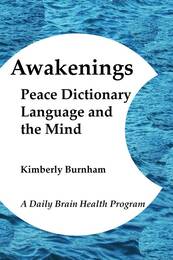 Brain Health Exercises Brain Health Exercises
Stealth Peace
"Shizuka" quiet in Japanese unhurried also peaceful, calm Japanese—"Heiwa" (peace) 平和, "Wa" / 和 (わ) + "Hei" 平, (へい), "Wahei" (peace), "Washoku" Japanese cuisine ("Wa" (peace, harmony, "Shoku" (food, cuisine), "Yasui" (cheap, inexpensive, calm, peaceful, quiet), "Shizuka" (quiet, unhurried, silent, peaceful, calm)—Japan, Brazil. Is Cheap Calm? "Yasui" Japanese calm, peace, quiet but also cheap, inexpensive
Visit Tokyo this summer. Hiroshima Peace Memorial Museum Hiroshima Day commemorates 6 August 1945, the day when an atomic bomb was dropped on the Japanese city of Hiroshima, followed a few days later by another dropped on the city of Nagasaki. 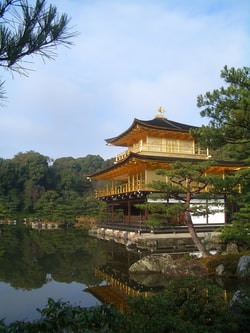
They catch on my tongue, roll around in my cheeks, cause my skin to turn green or orange as I desperately try to blend in with the answers to difficult questions. Common questions send me into hiding or delay in an effort to figure out how long I have for the answer, how much I should say, gauging the situations, the environment, the person asking the questions. Easy questions like, "Where are you from?", "Okay, where were you born?" ,
"Where did you go to school?", "Where do your parents live?" Straightforward questions are unbearable tricky for me. The answers, the intersection point between my straight laced Mormon past and my activist lesbian present. I was born in Provo, Utah, where my parents have returned to live. I graduated with a BSc. in Zoology from Brigham Young University (BYU), so simple cocktail party questions once answered, usually lead to, "Are you Mormon?" I am, five generations back and yes, there were polygamists but then Prop 8 destroyed what was left of my relationship with the Church of Jesus Christ of Latter--day Saints (Mormons), the part of the relationship that wasn't already difficult because I kiss a woman, while still at a Mormon university. So, sometimes it is embarrassing, in the circles I run in to admit to being a Mormon, especially with Mitt Romney, running for president of the United States. Simple questions, "Where did you go to school?" send me into a chameleon panic of does this person really want to know all the details or how can I answer truthfully without giving way too much information. It is the same way I feel when someone finds out I speak Japanese, which I learned as a Mormon missionary, although I later returned to Japan to teach English with my girlfriend. There are lots of intersections in my life, certainly between the religion of my childhood and my sexual orientation but lots of others as well. What I have learned from navigating these canyons, like the red rock of Southern Utah, is that the part of my life that I want to hide also connect me to amazing communities, if I can just keep the self hatred at bay. If I can be comfortable in my own unique skin and share myself openly and honestly, and unapologetically, there are ways in which I can connect with anyone, not because we are the same but because we are unique but have some over lapping edges.
|
Medium Blog
Home of the Daily Peace Challenge. Learn about world peace - one word and one language at a time. (c) Kimberly Burnham, 2022 The Meaning of Peace in 10,000 Languages Looking for grant money to complete this peace project Kimberly Burnham, PhD (Integrative Medicine)
860-221-8510 phone and what's app. Skype: Kimberly Burnham (Spokane, Washington) [email protected] Author of Awakenings, Peace Dictionary, Language and the Mind, a Daily Brain Health and P as in Peace, Paix and Perdamiam: an Inner Peace Journal To Stimulate The Brain Kimberly Burnham, The Nerve Whisperer, Brain Health Expert, Professional Health Coach for people with Alzheimer's disease, Memory Issues, Parkinson's disease, Chronic Pain, Huntington's Ataxia, Multiple Sclerosis, Keratoconus, Macular Degeneration, Diabetic Neuropathy, Traumatic Brain Injuries, Spinal Cord Injuries, Brain Health Coaching ... Contact Kimberly Burnham in Spokane Washington (860) 221-8510 [email protected]. Chat with Kimberly about Parkinson's, Poetry or other Brain related issues.
Not Taking Advantage of Your Amazon Author's page?
Kimberly Burnham helps authors get their books out into the world more broadly by improving their free Amazon Author's page and book pages, posting a book review on her blog and on her LinkedIn Pulse blog (over 12,000 followers) Promotion packages start at $50. Contact her at [email protected]. See her Amazon Author's Page. See her list of publications including her latest book of brain health meditations, Awakenings: Peace Dictionary, Language and the Mind, a Daily Brain Health Program. 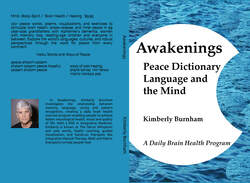 Look Inside on Amazon Look Inside on Amazon
Now Available: AwakeningsPlease share and write a review on Amazon.
Poet-In-Residence Position
I am looking for guest blog opportunities and a position as poet-in-residence. My current project is writing dictionary poems using words in different languages for the English word "peace." You can read some of my poems on Poemhunter . As poet-in-residence I would write poems on different words in different languages and broadcast them throughout the social media blogosphere. Each poem would link back to your site where the word or language appeared. I would expect some sort of stipend and a six month to one year placement. Please contact me for details if your organization is interested in having a poet-in-residence to help get your message out. [email protected] Buy the print or eBook, review Awakenings then contact Kimberly for a free 20 minute brain health consultation. Email or Phone
(Regular rates $120 per hour or 10 sessions for $650.) (Integrative Medicine)
|
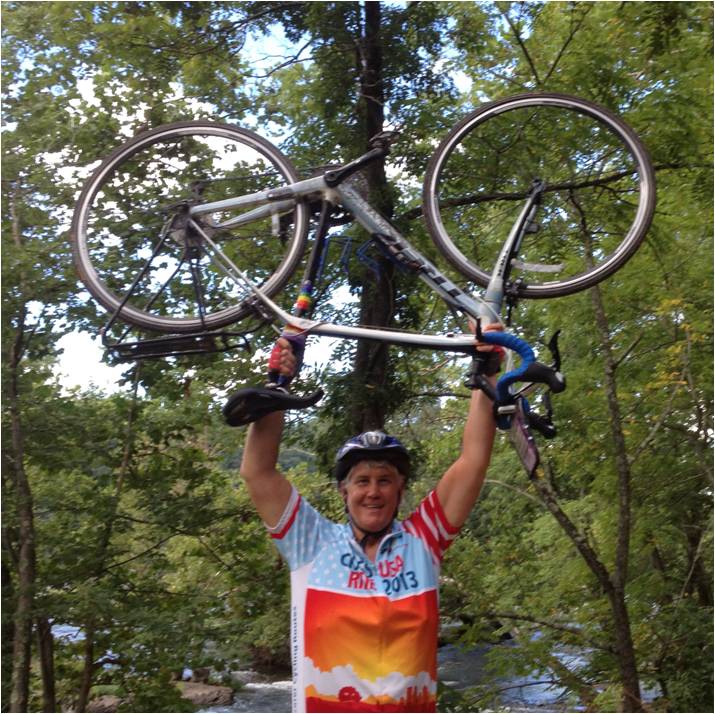
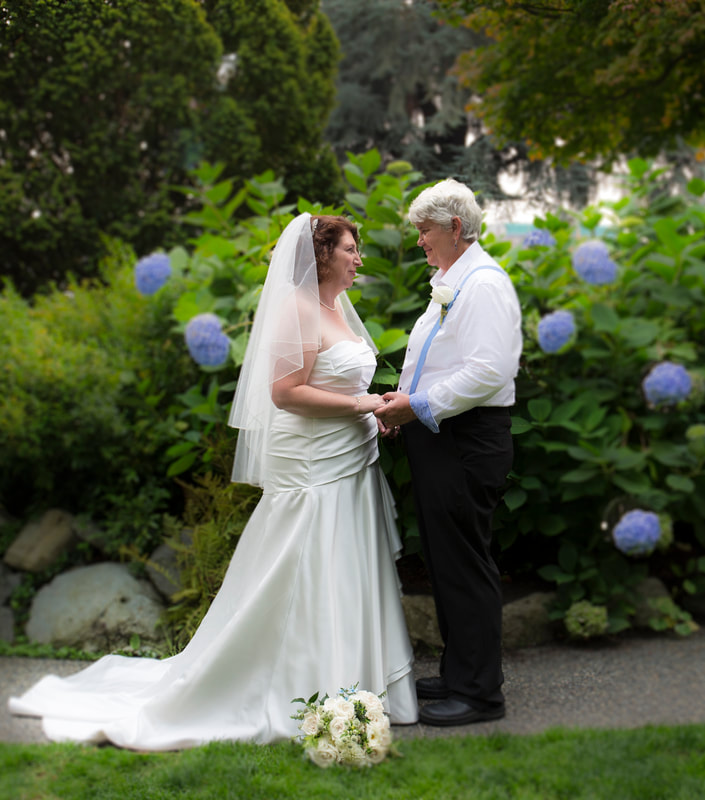
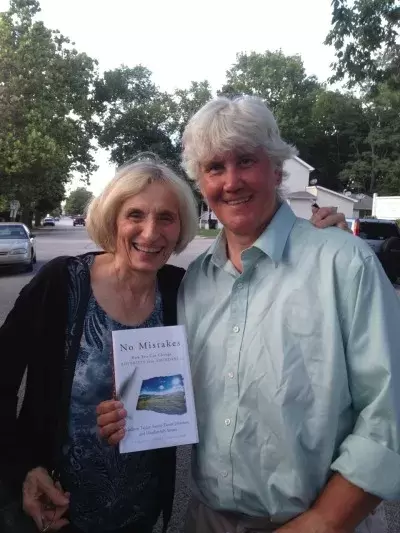
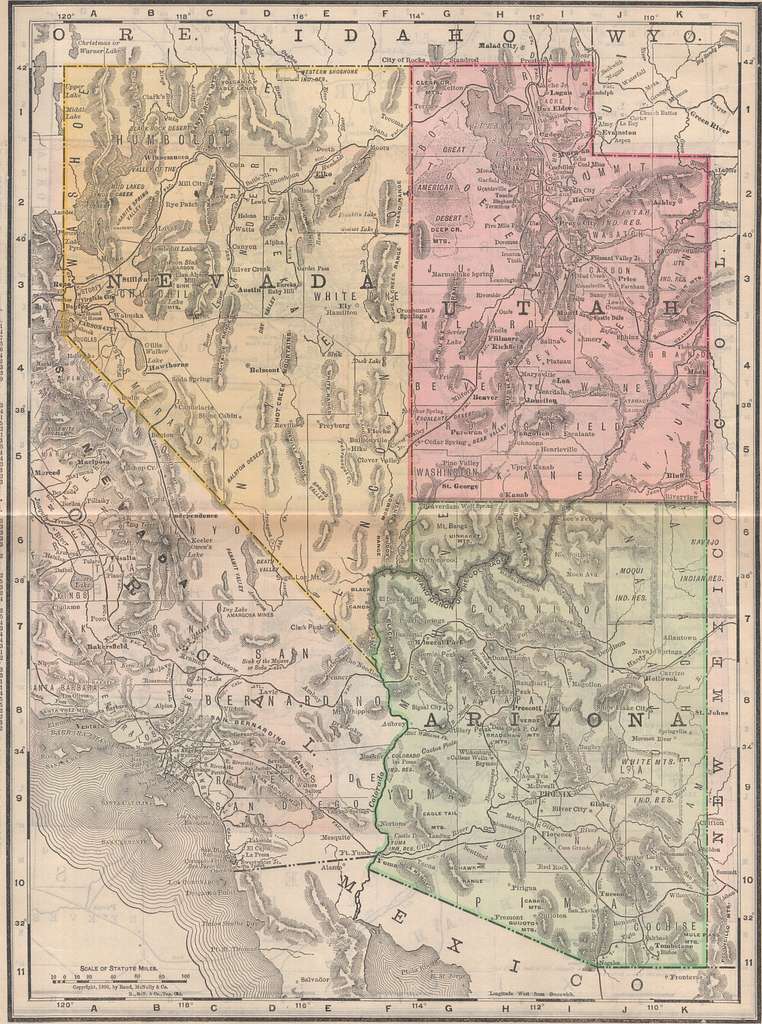
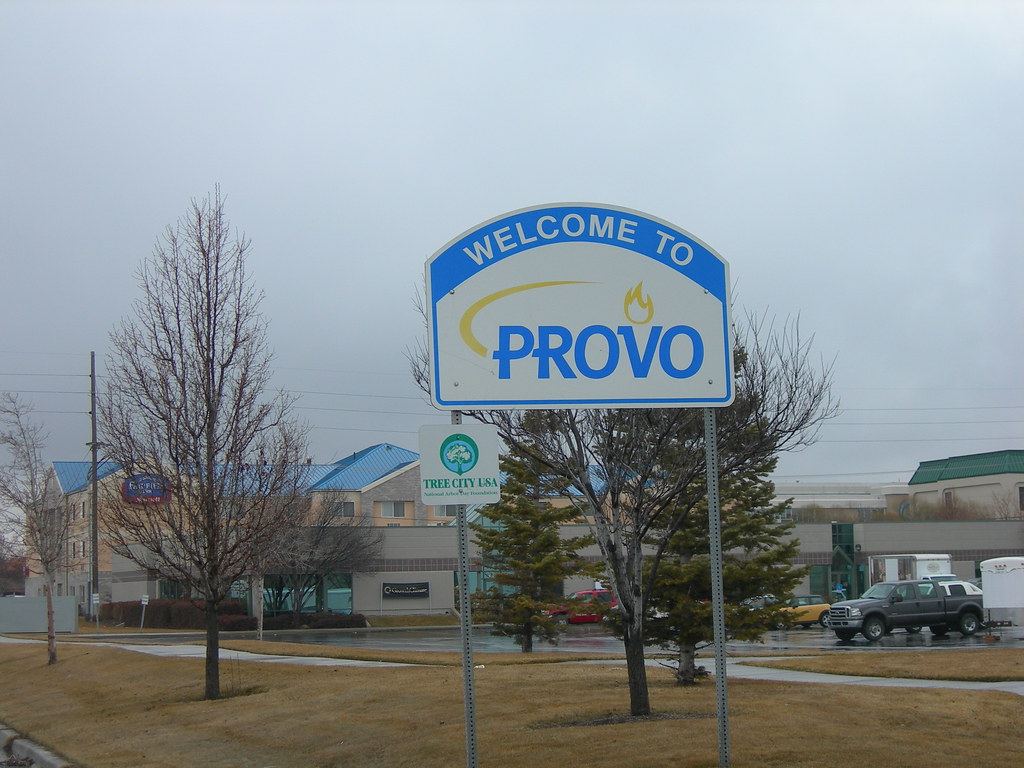
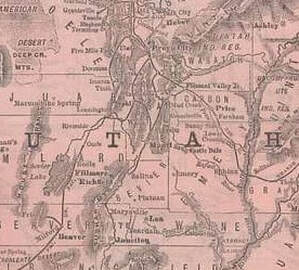
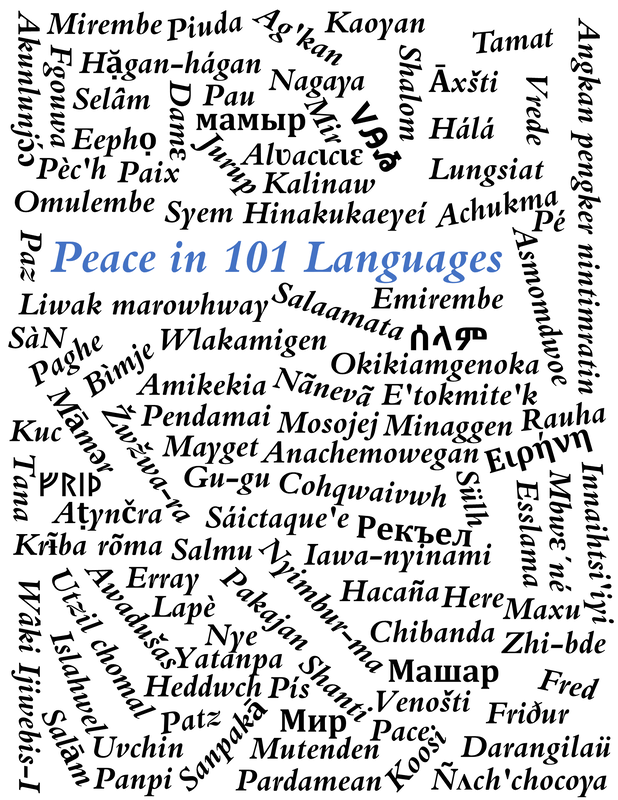

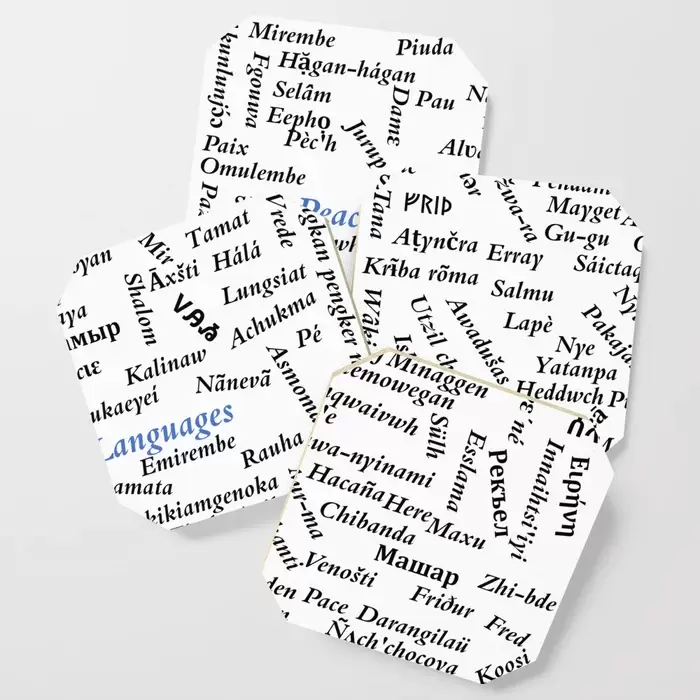


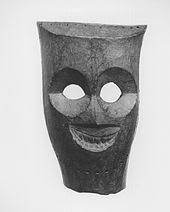

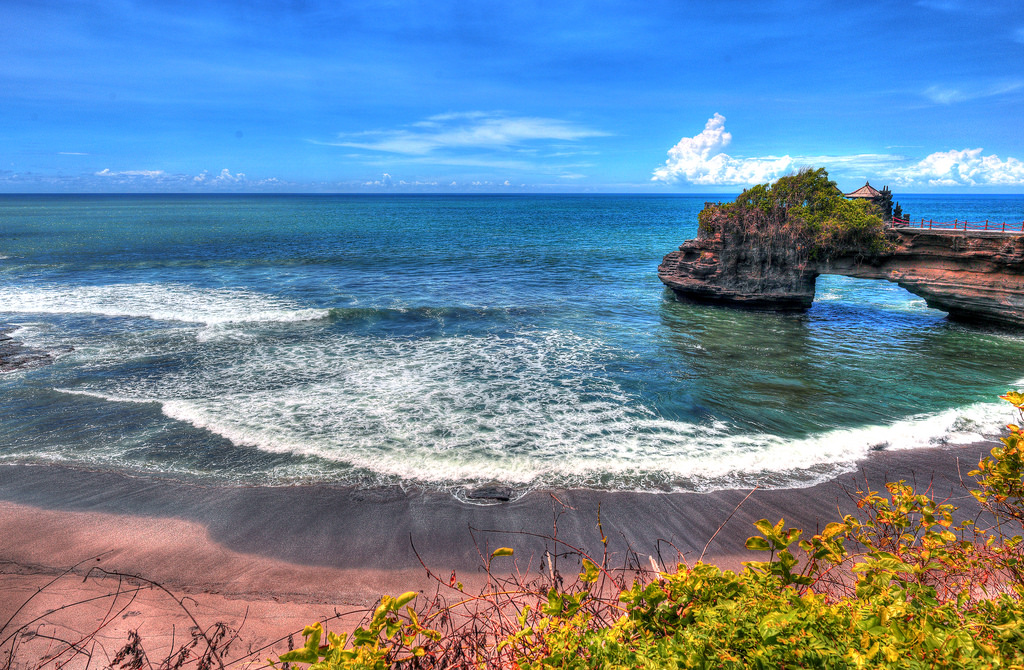
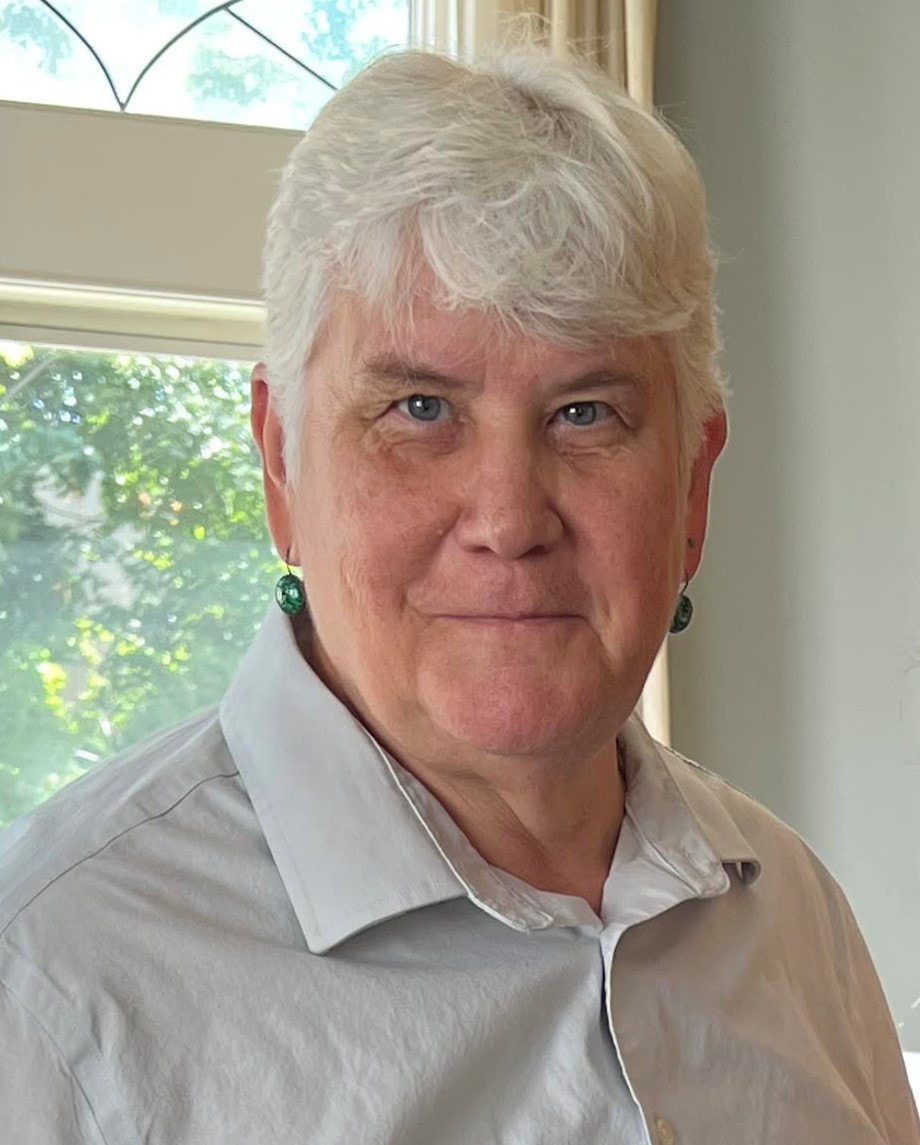
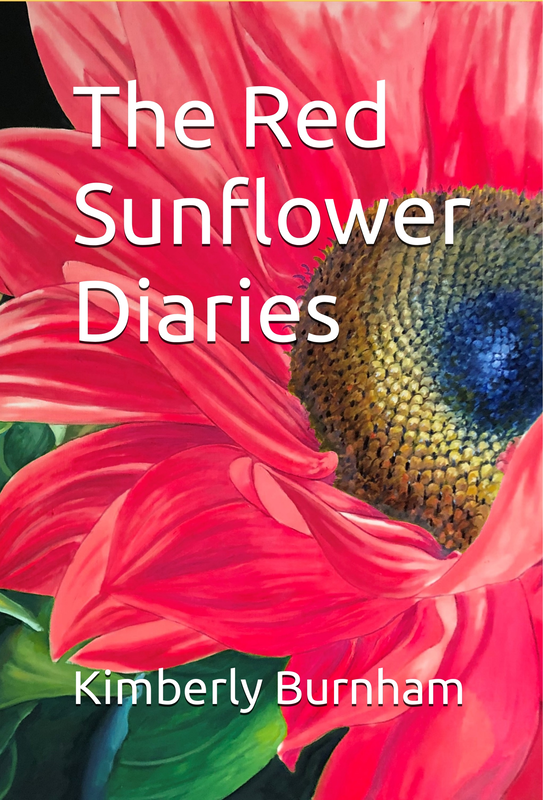


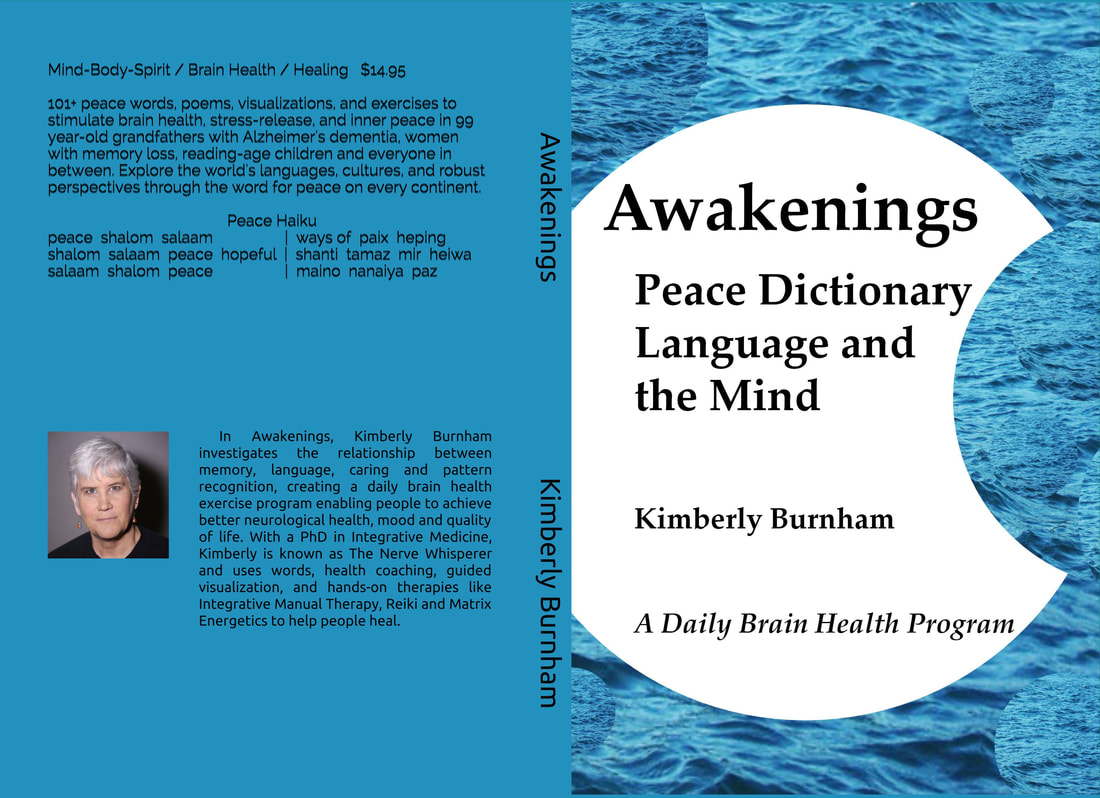
 RSS Feed
RSS Feed
